


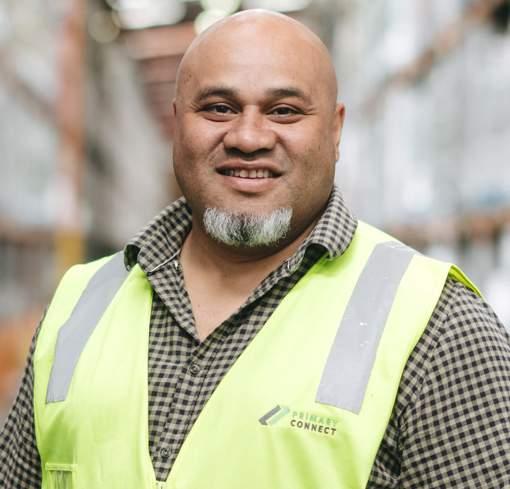
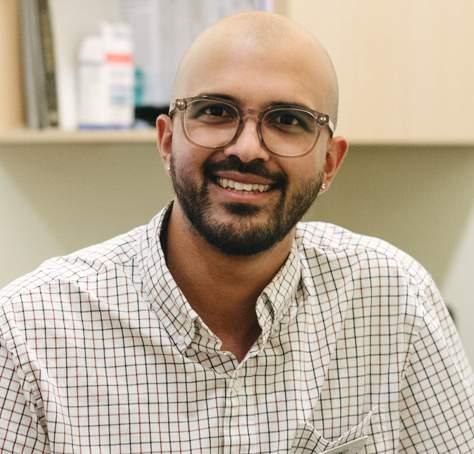


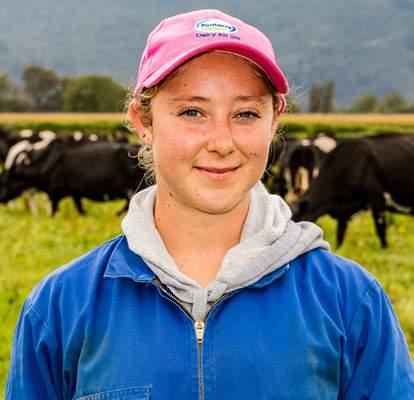
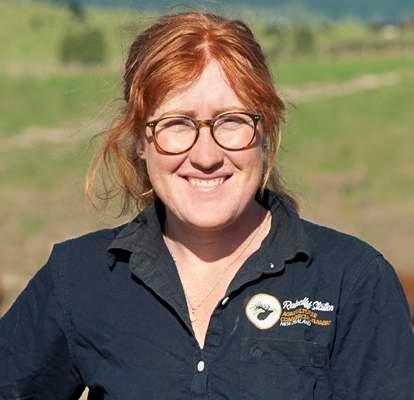








 SIONE LATU SUPPLY CHAIN MANAGER – PAGE 10
RENEE WOOD DEER FARMER – PAGE 17
SIONE LATU SUPPLY CHAIN MANAGER – PAGE 10
RENEE WOOD DEER FARMER – PAGE 17
A free guide to study and career options for high school students
12-13 LEAVINGSCHOOLNZ WWW.LEAVINGSCHOOL.CO.NZ
KAVIN NATALI OPTOMETRIST – PAGE 11
Years
OLIVIA JONES NAVY MEDIC – PAGE 34
MICHELLE CRAWFORD DAIRY FARMER – PAGE 7
MAY 2023 | ISSUE # 26 CHRISTCHURCH 11–13 MAY PALMERSTON NORTH 18 MAY NAPIER 23 MAY HAMILTON 11–12 JUNE AUCKLAND 15–17 JUNE WELLINGTON 23–24 JUNE DUNEDIN 28 JUNE Admission to the Expo is free for all visitors. Visit www.careersexpo.org.nz
JOHN ALLAN CARPENTER – PAGE 32
MARY JO VERGARA ECONOMIST – PAGE 5
SEAN YANG ACCOUNTANT – PAGE 8

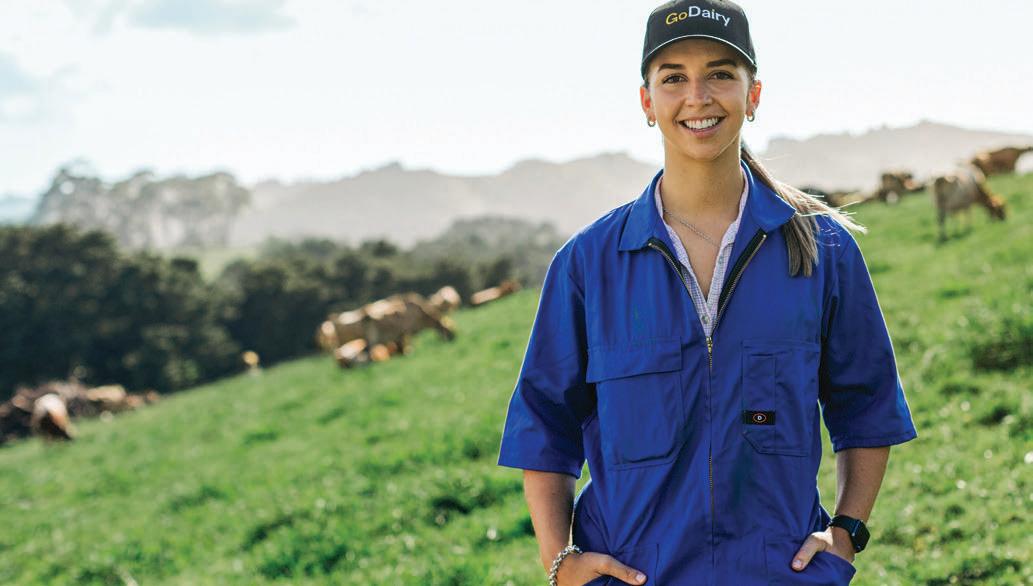

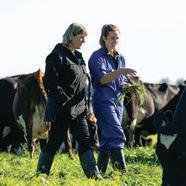
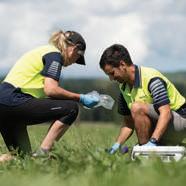


There are plenty of options in dairy Dairy farming Agri-business Agri-science Godairy.co.nz Take the quiz to find out what your next step could be towards a brighter future. Discover your fit As one of New Zealand’s largest employers, the dairy sector needs motivated and passionate people to make a difference in the world. Discover your future in dairy and learn about the range of career options that dairy has to offer.
MANAGING EDITOR
Oliver Lee
SUB-EDITOR
Elise McDowell
CONTRIBUTING WRITERS
Sara Carbery, Diana Clement, Mary Jo Vergara, careers.govt.nz, Janet Tuck, Peter White
PHOTOGRAPHERS
Nimita Dutt, Emmily Harmer, Andy Jackson, iStock, Komatsu, Vivienne Laursen, Luke Marshall, Marty Melville, Dean Norrie, Staff Sergeant Patch Palatchie, Stephan Pollock, Corporal Sean Spivey, Alan Stevens, Mel Waite, Logan West, Renee Zotov
DESIGN & LAYOUT
Mervyn Hurley (HNZL 2014 Limited)
PRINTER Webstar, Auckland
PUBLISHER


Box 331-667, Takapuna, Auckland 0740
T: +64-9-486 6966
E: oliver@oliverlee.co.nz
W: oliverlee.co.nz
W: LEAVINGSCHOOL.CO.NZ
ISSN 2463-3380 (Print)
ISSN 2463-3399 (Online)

COPYRIGHT: Reproduction in whole or in part by any means is prohibited. DISCLAIMER: The opinions expressed in this magazine do not necessarily reflect the opinions of the publisher. Although all material is checked for accuracy, no liability is assumed by the publisher for any loss due to use of material in this magazine.

05 FOREWORD | MARY JO VERGARA
At high school, an interest in economics came by surprise. It’s now a great career.

06
FARM ASSISTANT | HARRY FINCH
This graduate is keen to be an industry leader and a graduate programme is helping with that.

07 AGRICULTURE | MICHELLE CRAWFORD
From milking the neighbour’s cows to farmer – the agriculture industry was always in her future.
08 ACCOUNTANT | SEAN YANG
It has been a steady rise to the top for this PwC scholarship recipient.
10 SUPPLY CHAIN MANAGER | SIONE LATU

A great leader can come from anywhere, so be prepared to break down barriers.
11 OPTOMETRIST | KAVIN NATALI
An eye-opening video lead this healthcare professional into the field of optometry.
12 WELDER | KATHRYN BILLING
Her family’s focus on mechanical engineering inspired this structural steel welder into the industry.
14 CLIMATE CHANGE ANALYST | FRANCESCA HARRIS-WIGHT
A combination of combatting climate change and the agriculture industry sees this analyst ready to make change.
15 DAIRYNZ | ASHLEY PRIMROSE


Solution seeking, challenges and agricultural science research has this DairyNZ employee excited for the future.
16 COMPLIANCE OFFICER | STEPHANIE LEAMY
There are so many pathways into the meat industry.
17 DEER FARMER | RENEE WOOD
Growing up rurally meant this farmer knew farming was for her.
18 REGISTERED NURSE | MARY THOMPSON
Seeing the kindness and empathy of nurses as a child inspired this recent graduate to pursue a career in nursing.
20 CONCRETE PRODUCTION | ELLA WILSON
This industry is in need of an injection of young workers, so consider a career in concrete.
22 MARINE ENGINEER | ZAC THOMAS
Merging engineering with a life on the sea has been a winning combination.
23 PARAMEDICINE | CHARLOTTE BROMS
From volunteering right through to area management, this led to a fulfilling career at Hato Hone St John.
Key dates, websites and information are all collated in one spot
HEAVY MACHINERY TECHNICIAN | LAYLA HUNTER
Are you keen to get involved and progress ahead with big
CHASE SHERIDAN
An apprenticeship in drainlaying has provided a variety of work locations and tasks and a love for the role.
NICHOLAS HATTINGH
Award-winning apprentice has a clear pathway mapped
JOHN ALLAN
This recent apprenticeship graduate is enjoying all aspects of building, particularly working outside.
QUANTITY SURVEYOR | KATE THOMAS
A foundation in people skills and logistical skills smoothed the pathway for this recent construction industry starter.
|
OLIVIA JONES
Hearing her grandfather’s stories of his time in the Navy inspired this future medic to sign-up.
NEW ZEALAND ARMY | CORPORAL DALE GILBERTSON
If you are keen to get a trade, develop leadership and soldier skills and have variety in your daily role, consider the
NEW ZEALAND AIRFORCE | SCARLETT MACDONALD
An Royal New Zealand Air Force scholarship is assisting this engineering student to soar.
Scholarships often provide more than just a monetary prize and you may just be eligible for more than you realise.
Here are some practical, value-adding hints and tips to help
Learn how to put your best foot forward and stand out from EMPLOYMENT SKILLS
You want to impress your future employer at the interview, so here are some tips on achieving this.
Twenty-four jobs in several sectors are profiled here. You might just find your future career!
CONTENTS
3
STUDY IN YOUR HAPPY PLACE.
Study on campus, online or both

Massey University is one of Aotearoa New Zealand’s largest universities with more than 30,000 students studying across three vibrant campuses in Auckland, Palmerston North and Wellington, or by our virtual campus online. We are consistently ranked in the top 3% of universities worldwide and offer qualifications across Business, Creative Arts, Science, Humanities and Social Sciences, and Health.
Join us in 2024. massey.ac.nz
FROM FILLER SUBJECT TO CAREER KIWIBANK SENIOR ECONOMIST


When the time came to choose my subjects for fifth form (Year 11), History and Classics were at the top of my list. I took the compulsory subjects, English and Maths, and then two others for fun – Biology and Media Studies (who wouldn’t want to dissect a cow’s eye or the tropes of a 1960s Spaghetti Western). But I needed one more subject. I asked Dad for advice, and he suggested Economics. I wasn’t that keen, but I took the class anyway and sat at the back. It was my ‘filler’ subject. The very first topic we were taught was the “Law of Demand”, and it just clicked for me. In true high school fashion, we wrapped up the topic with a test. To my surprise, I got top marks. I also came away with a gummy bear prize and an increased appetite for economics. Soon, stories hidden within economic data were far more interesting to me than the military exploits of a Roman dictator or the dramas of French aristocrats.
I knew I wanted to delve deeper into the world of economics. High school was just scratching the surface. University was where I could uncover what laid beneath. So off to university I went. I started with a Bachelor of Commerce majoring in Economics, and came out the other side with a Master of Arts, still with a major in Economics.
It’s been over a decade since I walked the halls of Takapuna Grammar School. I think I’ve learnt a thing or two. So, here are a few tips on how to survive the final years of high school.
YOU DON’T KNOW WHAT YOU DON’T KNOW.

The classes that you take today don’t necessarily define your tertiary studies or your entire life trajectory for that matter. If university is the route you decide to take, you’ll be exposed to a wide range of disciplines in your first year. Through introductory 101 classes, you’ll be able to figure out which courses you enjoy. Exposure to new things can help discover hidden skills and new passions. Try not to be hyper-fixated on finding a super niche field of research. Instead, consider it a time to test the academic waters.
DIVERSIFY YOURSELF.
GOOD GRADES AREN’T THE BE-ALL AND END-ALL.

There’s a saying in finance: diversify your portfolio. The same applies to you. An academic transcript covered in A+ grades is impressive, but so is your interest


 by MARY JO VERGARA photographer LOGAN WEST
by MARY JO VERGARA photographer LOGAN WEST
in photography or your ability to speak three languages. The overall goal is to be a better individual, not just someone who can answer test questions. Invest in the other aspects of yourself: apply for that House Leader position, lean into those 7am netball practices, and immerse yourself in the high school production. So, chase those grades and pick up a few lapel badges along the way. You’ll grow as a person, expand your world view and boost your resilience.
PRIORITISE YOUR MENTAL HEALTH.
The final year of high school is tough. Up until this point, there was no need to think about what came next. But there is no Year 14. Once you get to the end, the door to the future opens and can seem so paralyzingly wide. Do you take a gap year or go down the tertiary education path or try your hand at a trade?
As you navigate your next steps, remember to prioritise your mental health. If you’re studying for the final exams or if you’re onto your third university application form and it’s all getting a bit too much, then step away from the desk. Never underestimate the power of a solid break. Go for a walk to clear your head, take a power nap or even procrasti-bake. It’s important to give it your best shot, but not at the expense of your mental health. Fast forward to 2023, and here I am as an economist at the mighty Kiwibank. Inflation, interest rates, demand and supply – they’re all part of the daily lingo. Who knew that a ‘filler’ subject would become my day job? Well, apparently Dad did. So, my fourth and final tip is: ALWAYS TAKE DAD’S ADVICE. HE KNOWS YOU BEST.
Mary Jo Vergara
LEAVING SCHOOL ISSUE #26 | LEAVINGSCHOOL.CO.NZ
Kiwibank Senior Economist
5
MARY JO VERGARA is a senior economist at Kiwibank. She attended Takapuna Grammar School on Auckland’s North Shore MARY JO has a Bachelor of Commerce majoring in Economics, and a Master of Arts majoring Economics from the University of Auckland
I NEVER WANTED TO BE AN ECONOMIST. IN HIGH SCHOOL, I WAS A CLASSICS BUFF. I WAS MORE INTERESTED IN LEARNING ABOUT THE CONQUESTS OF JULIUS CAESAR AND THE LAVISH LIFESTYLE OF KING LOUIS XVI.
AS YOU NAVIGATE YOUR NEXT STEPS , REMEMBER TO PRIORITISE YOUR MENTAL HEALTH
MARY JO VERGARA
RISING TO THE CHALLENGE AMBITIOUS FUTURE LEADER
 writer PETER WHITE photographer EMMILY HARMER
writer PETER WHITE photographer EMMILY HARMER
Harry attends weekly modules that cover everything from managing people, cows and grass to banking basics and industry fundamentals. In addition, the graduates are given the opportunity to network with some of the best professionals in the industry.
“It is going to extend the depth of our knowledge about every day on-farm practices and the nitty gritty aspects of owning a business. Also, the networking we receive is so important as it connects us with some very valuable people. Hopefully, the programme will fast track us into management and give us the tools to successfully progress within the industry, and in time enable us to build equity within a farm and be able to do that in a relatively fast time period.”
Harry is employed as a farm assistant in Ashburton. He is proud to be working in one of the most important sectors of the New Zealand economy.
“It is massive to be a part of dairying in New Zealand. It is an ever-changing industry, and we are constantly being faced with political and consumer challenges. It is humbling to be able to play a vital role for the future, and to try and ensure the success of the dairy industry as we go through some challenging economic times.
“I want to progress and grow, and possibly one day be an influential part of the industry.”

In Year 13 at St Bede’s College in Christchurch, Harry took Biology, Chemistry, Physics, Agriculture and Mathematics, which were the subjects he liked most through school.

A career in agriculture became a favoured option for him after he visited a farm in north Canterbury and was offered some holiday work shepherding. After leaving school, he completed a Bachelor of Science at Massey University.


“I’m loving what I am doing, plus I have been given all the opportunities to achieve my goals,” says HARRY FINCH. The 21-year-old is one of seven graduates selected for this year’s intake of the Grassroots Dairy Graduate Management Programme.
“It is a great new initiative that pairs up recent university graduates with high performing, reputable farmers in the Canterbury region.


Ultimately, the idea of the programme is to attract, develop and retain more university graduates into the industry,” says Harry.
“Currently, the dairy industry faces a labour shortage, so this programme is vital in the aspect that it will inject more ambitious people into the industry who are ultimately keen to tackle the challenges of owning and/or running a business within the dairy sector.”
Harry’s advice to school leavers – agriculture is not a hard industry to get into and the opportunities it presents are endless, particularly in the dairy sector, but you have to work hard at it.
LEAVINGSCHOOL.CO.NZ | LEAVING SCHOOL ISSUE #26
FARM ASSISTANT 6
at Massey University, visit www.massey.ac.nz
IT IS IS HUMBLING TO BE ABLE TO PLAY A VITAL ROLE FOR THE FUTURE , AND TO TRY AND ENSURE THE SUCCESS OF THE DAIRY INDUSTRY AS WE GO THROUGH SOME CHALLENGING ECONOMIC TIMES
HARRY FINCH
LOVE OF THE OUTDOORS FARMING FOCUS

MICHELLE CRAWFORD used to help her neighbour milk the cows and from then she knew she wanted to be a farmer. Her love of animals and farming has only grown since and now the 21-year-old is living the dream working on a dairy farm near the Waikato town of Te Aroha.

Michelle went to Whangārei Girls’ High School. In Year 13, she took Agriculture (by correspondence), Biology, Chemistry, PE and Statistics. She was relief milking all through her high school years, so it was always going to be a career in farming for her.
“I always knew I wanted to do something in agriculture and definitely working outdoors on a farm,” says Michelle.
“I knew I didn’t want an office job so I started to grow my knowledge in the agriculture sector by going to uni and then finding a job in the industry that would suit me.”
Michelle completed a Bachelor of Agriculture Science at Massey University before landing her job near Te Aroha.
She is grateful to DairyNZ for the mentorship, assistance and support she received while going through university.


“You get paired with a mentor who helps you with any questions you may have. It was highly reassuring. I was fortunate I got the job I have through Susan Stokes, the education facilitator at DairyNZ, who was so helpful to me at Massey.”


Michelle’s job involves plenty of variety and the opportunity to learn new skills.
On any given day she milks cows in the morning, then does tasks that are needed on the farm – like feeding out to the cows, rearing calves and feeding them milk, fixing fences, weed spraying and machine maintenance.
“I love that it is outdoors. I love the animals, how the job is flexible and you are not stuck doing one thing, plus the job is very practical. There is so much to learn and to do.
“Each day is kind of different in a way and things pop up. It is awesome. I love it. You are never bored on a farm.”
Challenging herself to go out of her comfort zone has been another positive for Michelle, especially working with heavy machinery.
“I have not had much to do with that, so it was kind of a challenge at first, but it is getting easier now – things like putting the loader on the tractor and bale feeders. There is quite a lot going on.”
Michelle recommends the dairy industry as a career to consider, especially for young women.
“There are so many more women in agriculture now [who] you can talk to and you don’t feel undermined. I feel that if you love your job, then
LEAVING SCHOOL AGRICULTURE 7
www.dairynz.co.nz/people/dairy-careers For more information on study options available at Massey University, visit www.massey.ac.nz
writer PETER WHITE photographer ALAN STEVENS
EACH DAY IS KIND OF DIFFERENT IN A WAY AND thINGS POP UP. IT IS AWESOME I LOVE IT YOU ARE NEVER BORED ON A FARM. MICHELLE CRAWFORD
PROBLEM SOLVER AND TRUST BUILDER THE ART OF ACCOUNTING ACCOUNTING
If you think accountants are bean counters who just work with numbers, think again.
“Accounting is as much an art as it is a science,” says SEAN YANG , a Partner at PwC in Auckland.
“One of the things that brings me the most joy is that every day I am playing my part in building trust in society and solving important problems.
“I’m passionate about helping clients solve their most pressing commercial challenges and helping them navigate complexities in a commercial and pragmatic manner.”
As a corporate and transaction tax specialist, Sean has advised clients on some of the largest corporate transactions over the past few years and helped multinational brands expand their presence in the New Zealand market.
His journey with PwC New Zealand began in 2006 when he was awarded a PwC scholarship, which set him up well for a Bachelor of Commerce majoring in Accounting and Commercial Law at the University of Auckland.
As well as receiving financial support, scholarship recipients are teamed with a mentor for the duration
Change lives through better sight with a career in optometry
As health care professionals, optometrists aim to provide the best possible health outcomes for patients using their knowledge of how the eye functions to treat and manage vision problems.

At Specsavers, we are focused on providing the highest level of patient care. Our optometrists are committed to reducing the rate of

avoidable blindness and improving sight through the prescription of glasses and contact lenses.


We’re on a clear mission to change lives through better sight in New Zealand – and we need more people to join us on that mission.
For more information contact: anz.graduateoptometry@specsavers.com
of their tertiary studies and encouraged to apply for paid summer internships with PwC.
These summer internships provided Sean with valuable exposure to the firm and introduced him to industry professionals that he aspired to work with in the future.
“These relationships and the insights I gained were invaluable and set me up for success.”

After graduating with his degree, Sean did a Master of Commerce majoring in Accounting in Sydney, before returning to Auckland and starting as a graduate at PwC.
In the 12 years since, he has completed a Master of Taxation Studies (Honours), and worked in Auckland and Sydney. Last year, Sean was admitted as a Partner at PwC New Zealand.
If you’re considering a similar career path, Sean suggests applying for a PwC scholarship and embracing the opportunities that come with it, including the mentorship and internship opportunities.
“I also recommend attending the various events that PwC hosts. These are a great way to network and explore our many exciting business units and teams.”
writer SARA CARBERY // photographer LOGAN WEST
8
ONE OF THE THINGS THAT BRINGS ME THE MOST JOY IS THAT EVERY DAY I AM playing my part in building TRUST IN SOCIETY AND SOLVING IMPORTANT PROBLEMS .
SEAN YANG
He also encourages school leavers to get involved in university clubs and societies, and other extracurricular activities, including part-time jobs.
“Remember to maintain a growth mindset, seek out mentorship and networking opportunities, and be open to learning and development opportunities.”
As far as school subjects go, don’t underestimate the importance of English, which Sean took in Year 13 at Westlake Boys’ High School, alongside Mathematics, Accounting, Economics and Physics.
“I didn’t realise it at the time, but continuing English studies right through to the end of high school taught me valuable lessons about how the language can be used to communicate complex matters in simple, easily understandable terms. It also taught me about articulating my thought processes in a considered way.”
And one final piece of advice: “Be curious, ask questions, listen and digest before you offer your own views. Accept that hard work may feel painful in the short term, but it will pay off in the long run.”
Applications for our PwC Scholarships open 26 June 2023
Mā te huruhuru ka rere te manu Scholarship

Our Mā te huruhuru ka rere te manu Scholarship is designed to give young Māori students the best start possible. The name of this scholarship is a whakataukī that translates to ‘Adorn a bird with feathers and it will fly.’ This whakataukī is the foundation of what PwC would like to achieve by awarding this scholarship to talented young Māori.
PwC Scholarship

The PwC Scholarship is designed to support students facing financial and/or personal hardship, restricting your ability to enter tertiary education. We want to give talented young people the best start possible.
What do the scholarships include?

• $7,000 towards your tertiary studies (fees and course related costs) over the course of your degree.

• A PwC mentor for the duration of your tertiary studies (Mā te huruhuru ka rere te manu Scholarship recipients will be matched with a mentor from the Manukura Māori Business team).



• An opportunity to apply for a paid Summer Internship at PwC NZ.

• Access to business networks at our social and scholarship events.
• The opportunity to learn about what we do behind the scenes at PwC.
Be a part of The New Equation © 2023 PwC New Zealand. All rights reserved.
Find out more by scanning the QR code, or go to www.pwc.co.nz/pwcscholarships
ACCOUNTING 9 SUPPORT AND MENTORING ■ SEAN STUDIED ENGLISH, MATHEMATICS, ACCOUNTING, ECONOMICS AND PHYSICS IN YEAR
13
BREAK DOWN BARRIERS FAST-MOVING, VARIED ROLE
writer PETER WHITE // photographer LOGAN WEST
Sione is the Supply Chain Manager with Primary Connect New Zealand, based in south Auckland. The company delivers dried goods to all the Countdown, Fresh Choice and Super Value stores nationwide.

Sione is responsible for 540 team members.
“I am responsible for the actual site itself. Everything from pallets coming in to pallets going out, and everything in between, ensuring that the team is safe and that we are doing things on time, every time.
“It is a fast-moving distribution centre where we can move up to one million cartons per week.”
What he loves most about his role is the interaction with his team and how
there is something new happening every day.
“I love dealing with people, celebrating people’s achievements and seeing people grow in their roles. From the business aspect, the finances and budgets keep you on your toes and hitting your KPIs is something that I really enjoy.
“Your role as a Supply Chain Manager varies every day. One day you could be a father and giving guidance around life in general, the next you could be giving financial advice. When dealing with people, your day is never the same.”
Sione has been with the company for 21 years. He started on the depot floor as an agency worker and slowly worked his way up to where he is now.
“One of the biggest things I keep true to is ‘Not everyone can be a great leader, but a great leader can come from anywhere’. Do not limit yourself because you don’t fit the norms. Get out there, break barriers and stigmas.
“I wasn’t great at school so have had to grind the hard way. My time at Marcellin College in Royal Oak was more about playing rugby and having fun with my mates than academic studies.
“Don’t limit yourself with what you think a good leader looks like and that you don’t look or act like that vision. It is breaking down those barriers and creating your own narrative.”
Sione has mentored many young school leavers over the years while working for Primary Connect. He says
the biggest thing he looks for is that they want to learn.
“If you have the want, everything else falls into place. I guess coming out of school, they are over learning but supply chain is a massive industry and there are so many opportunities within Primary Connect. There is the world of management, there’s buying, working in the social media department, and so much more. It is not just a distribution centre.
“I really want young people to realise there are so many opportunities in so many different departments that they can sink their teeth into. Potentially, they can have a career for life here. The skills you learn in supply chain are transferrable in many ways.”
KEY FACTS

■ SIONE LATU IS A SUPPLY CHAIN MANAGER WITH PRIMARY CONNECT NEW ZEALAND THE COMPANY DELIVERS DRIED GOODS TO ALL COUNTDOWN, FRESH CHOICE AND SUPER VALUE STORES IN NEW ZEALAND

■ HE HAS WORKED AT PRIMARY CONNECT FOR 21 YEARS, WITH HIS FIRST ROLE AS AN AGENCY WORKER. HE IS NOW RESPONSIBLE FOR 540 TEAM MEMBERS
■ SIONE HAS MENTORED MANY YOUNG PEOPLE AND HIGHLY RECOMMENDS A CAREER IN THE SUPPLY CHAIN INDUSTRY
SIONE



SUPPLY CHAIN MANAGER
LEAVINGSCHOOL.CO.NZ | LEAVING SCHOOL ISSUE #26
“Always do your best at whatever you do and have the sort of mentality to try and be better than what you were yesterday,” says SIONE LATU.
10
DO NOT LIMIT YOURSELF BECAUSE YOU DON’t FIT THE NORMS . get out THERE , BREAK BARRIERS AND STIGMAS .
LATU
the joy that YOU can PROVIDE BY GIVING SOMEONE IMPROVED SIGHT REALLY MAKES THE JOB REWARDING
KAVIN NATALI
EYE UP A GOOD FUTURE OPTOMETRY BRINGS REWARDS


In his final year at Auckland’s Lynfield College, KAVIN NATALI knew he wanted to pursue a career in health, but it was a video about the Fred Hollows Foundation and the volunteer work they do in the Pacific that steered him in the direction of optometry.
“The fact that they were able to give sight, something we sometimes take for granted, to those who have never had the right access to healthcare was very eye-opening,” Kavin says.
Almost a decade on from leaving school, Kavin is working as an optometrist at Specsavers Sylvia Park – a job he clearly loves.
“The biggest positive about working as an optometrist comes from being involved in community healthcare. The joy that you can provide by giving someone improved sight really makes the job rewarding.
“Not only this, but the work–life balance is great too. With other health professions, the workload is never ending and this can lead to burn-out.

“Usually there isn’t work to take home and rarely are you expected to work overtime. Another positive is being well remunerated in terms of pay.” He admits that managing distraught, concerned and sometimes hostile patients can be tricky, and being the bearer of bad news can also be very difficult to navigate.


“But the degree does prepare you well for these sorts of scenarios and these challenges, once overcome, only make you a better practitioner and healthcare provider.”
writer SARA CARBERY photographer LOGAN WEST
Working as a student optometrist at the university eye clinic was a highlight of Kavin’s time at the University of Auckland – the only university that offers an optometry degree in New Zealand.
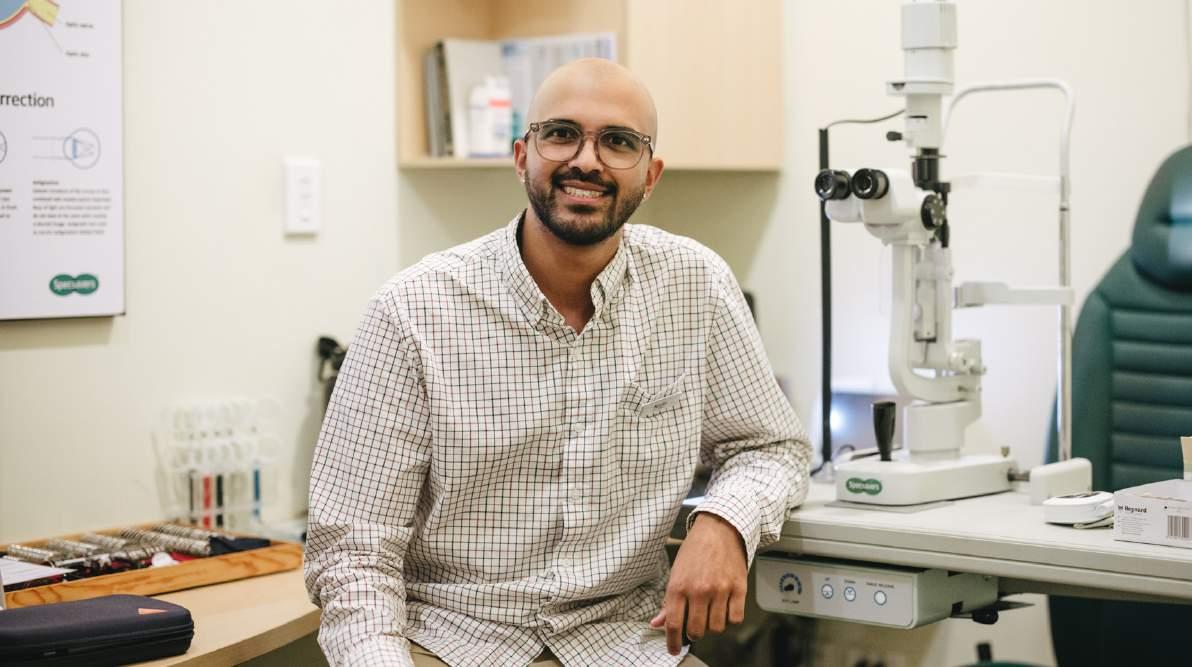
He also worked part-time at Specsavers as an optical assistant while he was a student, which gave him an insight into the day-to-day operation of a clinic.
“It also taught me skills such as customer support, optical dispensing, clinic management and communication skills, which directly helped me with my degree.”
After graduating with a Bachelor of Optometry, Kavin worked at Specsavers Taupō for three years, as part of the Specsavers Graduate Programme.
“Due to the rural location, not only was I dealing with regular eye examinations, but also a number of emergency cases, which I would not have had the chance to deal with if I was living in a metro city.
“Some rural towns don’t have immediate access to eye specialists and therefore we became the first point of contact for anything eye-emergency related. This really helped me build confidence, especially in the foundational years of my career.”
Of the subjects he took in Year 13 – Physics, Chemistry, Biology, Accounting and Statistics – Kavin says the science subjects in particular set him up well for his degree.
■ KAVIN NATALI HAS A BACHELOR OF OPTOMETRY FROM THE UNIVERSITY OF AUCKLAND, THE ONLY UNIVERSITY OFFERING THIS DEGREE IN NEW ZEALAND
■ HE WORKS AS AN OPTOMETRIST AT SPECSAVERS SYLVIA PARK, AFTER HAVING WORKED FOR THREE YEARS AT SPECSAVERS TAUPŌ AS PART OF SPECSAVERS GRADUATE PROGRAMME
■ KAVIN STUDIED PHYSICS, CHEMISTRY, BIOLOGY, ACCOUNTING AND STATISTICS IN YEAR 13
For more information on the Specsavers Graduate Programme, visit https://join.specsavers.com/ne/ graduate-programme/

For more information on studying optometry through the University of Auckland, visit www.optometry.auckland.ac.nz

LEAVING SCHOOL ISSUE #26 | LEAVINGSCHOOL.CO.NZ OPTOMETRIST
11
.
WELDING WINS THE DAY STEADY ON STEEL
“My family is the biggest influence on why I got interested in mechanical engineering,” says KATHRYN BILLING. “My uncle is like an engine doctor, we have panel beaters in the family and my dad was in engineering as well.”
An early memory for Kathryn is her dad tinkering around with his car. While she did not get into automotive or panel-beating work, she always had an interest in welding.
“I have always been fascinated about how you can shape metal. I found I was particularly good at welding, had quite a steady hand and really enjoyed it.”
Kathryn is in her second year as a fulltime structural steel welder for D&H Steel in Auckland. Prior to that, she completed her one-year pre-trades New Zealand Certificate in Mechanical Engineering at Unitec in Auckland, as part of the Māori and Pasifika Trades Training (MPTT) scholarship programme.
“I was looking online for mechanical engineering courses and was interested in the MPTT. I went into Unitec and met Tu Nuualiitia, who is the student experience partner and manages the MPTT scholarships. He was able to tell me about the scholarship. I had an interview and was pleased to be offered a scholarship to help me with my studies.”
writer PETER WHITE // photographer LOGAN WEST
Unitec’s pre-trades programme is something Kathryn recommends for school leavers to consider doing if they are interested in getting a career in the trades.

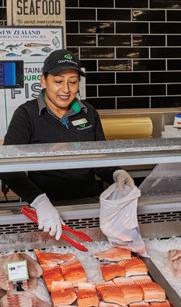



“It is a bit of everything. Mechanical engineering covers theory and practical, so it is the best of both worlds. That is how I found that my strength was in welding, even though fabrication was fantastic. You get to have a feel for what your strengths are.”
A major positive about the Unitec course is the industry connections that the lecturers have. Kathryn says they were super supportive, and she never felt under pressure at any time.
“They really gave me my start in the industry, which I am grateful for. You just must have a passion to learn.”

Kathryn went from Unitec to working for D&H Steel, thanks to Tu from Unitec putting her in touch with her current boss, Cameron Rogers.
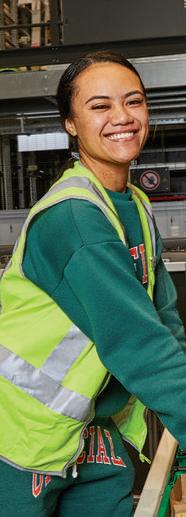
“I didn’t have the confidence and thought they would not take me on, but that’s the whole point of getting the pre-trades qualification. It shows you already have the interest, and you are obviously keen, as you have committed an entire year to something relevant to the work.”
LEAVING SCHOOL AND NEED A JOB?
We provide a friendly and down-to-earth workplace that’s inclusive and supportive, where we work hard and love what we do.
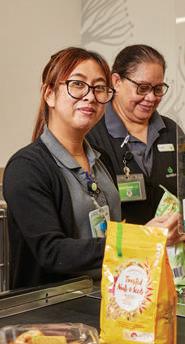



There are a variety of roles available throughout New Zealand with something for everyone. Scan the QR code, drop off your CV or email it to careers@countdown.co.nz to apply.
We’re committed to having equal opportunities for all.

WELDER 12
MECHANICAL ENGINEERING COVERS THEORY AND PRACTICAL , SO IT IS THE BEST OF BOTH WORLDS . THAT IS HOW I FOUND THAT MY STRENGTH WAS IN WELDING , EVEN THOUGH FABRICATION WAS fantastic
KATHRYN BILLING
Come as you are | Haere mai rā
“We have a lot of projects going on at the moment. We get to work on apartments, on walkways, the University of Auckland as well. The most important project I am welding big

steel pipes for is the new domestic airport extension. I saw our first column for the airport being erected and when you see your work out on the field there is a lot of pride.”
KEY FACTS





■ KATHRYN BILLING IS A STRUCTURAL STEEL WELDER FOR D&H STEEL IN AUCKLAND



















■ SHE COMPLETED A ONE-YEAR PRE-TRADES NEW ZEALAND CERTIFICATE IN MECHANICAL ENGINEERING AT UNITEC IN AUCKLAND, AS PART OF THE MĀORI AND PASIFIKA TRADES TRAINING (MPTT) SCHOLARSHIP PROGRAMME


■ KATHRYN RECOMMENDS PRE-TRADES PROGRAMMES FOR STUDENTS WHO ARE INTERESTED IN A CAREER IN THE TRADES
For more information on studying engineering at Unitec, visit www.unitec.ac.nz





For more information on Māori and Pasifika Trades Training scholarships, visit www.maoripasifikatrades.co.nz/apply-now

WELDER 13
Kathryn loves her job welding and the versatility of working with steel. She especially likes seeing the finished product being installed at some major projects around Auckland.
COMBATTING THE MAJOR ISSUES

CLIMATE CHANGE ANALYST


FRANCESCA HARRIS-WIGHT is proud to be part of a vital sector. Recent climate events have shown just how important it is to address climate change.
The 24-year-old works as an analyst at the Climate Change Commission, which provides independent advice to government on climate issues based on research and analysis of different factors.
Francesca has been in the role since August last year, after completing her Master of Agricultural Science. “We also look at the bigger picture to make sure we understand the impacts of our advice on certain communities or households and the economy. I work in the land and waste team and am mostly involved in the agricultural side of things,” says Francesca.
“Every day looks quite different to me. I can be talking to a number of different people, such as industry bodies like DairyNZ or Beef + Lamb NZ, or talking to businesses and non-governmental organisations about climate issues and policy impact on farmers and rural communities.
writer PETER WHITE // photographer DEAN NORRIE


“I could also be reviewing some research around new on-farm mitigation technology or agricultural publications. It varies a lot. It is just a really cool place to work.”
Francesca says she is constantly learning new things in her role and is surrounded by people who are experts in their field.
Even though she grew up in Christchurch, she was always interested in agriculture. Her grandparents ran a high-country sheep and beef farm, and when she was studying at university, Francesca decided she wanted to get into a mix of the climate, environment and agriculture sectors.
Before joining the Climate Change Commission, she completed her master’s degree with help from a DairyNZ post-graduate scholarship. The scholarship funded her $30,000 per annum, plus tuition fees, for two years. She was based in the DairyNZ offices in Lincoln.
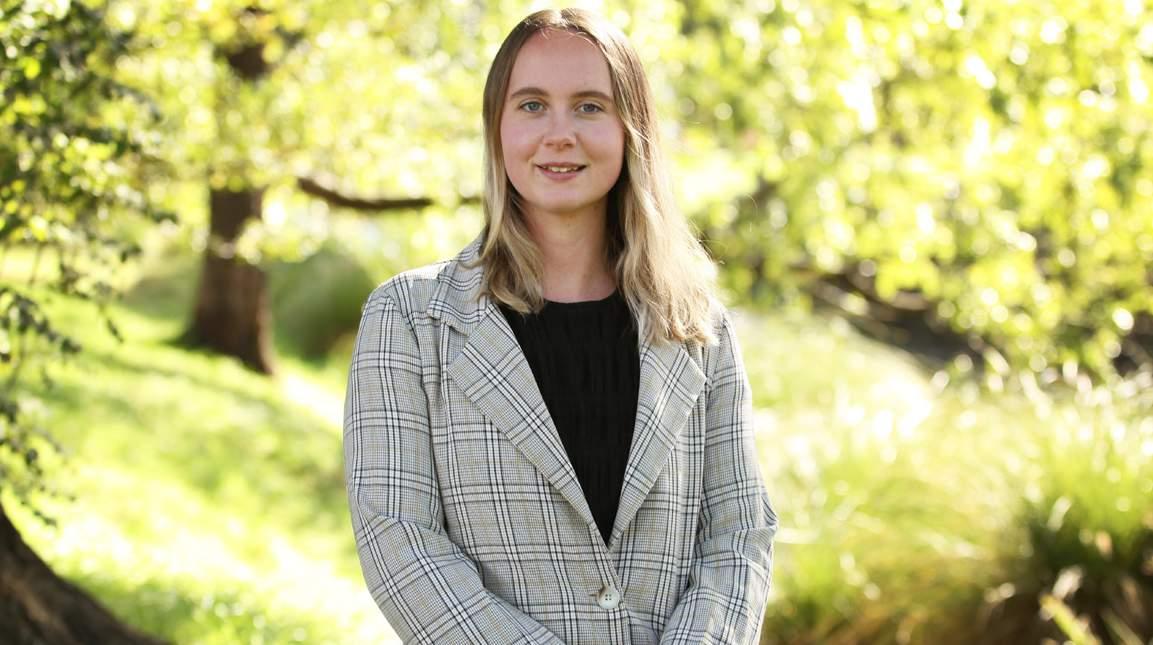
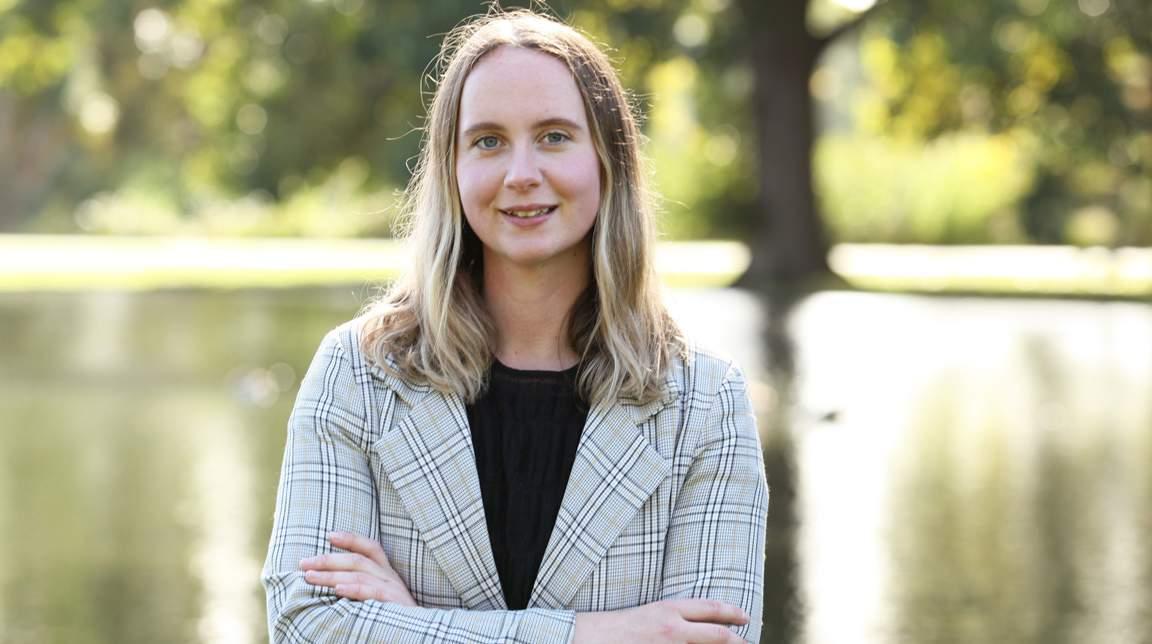
“After finishing my degree at the University of Otago, I was looking for jobs and saw the opportunity for the DairyNZ post-graduate scholarship. I contacted

them and they accepted me. They asked me if I wanted to work on a dairy farm to get some first-hand experience, so I did that for a few months in Methven. I think getting that practical experience was the best thing I ever did for my role now.
“My master’s was on modelling climate impact on a Northland dairy farm out until the end of the century and also looking at climate adaptation for farmers.
“That sparked a lot of my interest in climate change and those events up north a month or so ago just ring home how relevant it is.”
Francesca attended Burnside High School. In Year 13, she took Chemistry, Physics, Biology, English and Calculus. Her advice to students leaving school who may be interested in climate change and the environment is to get involved as much as you can.
“If you are thinking this is something you are passionate about, then see what courses different universities or polytechs offer and go for it. Just explore anything that you think drives you.”
14 CLIMATE CHANGE ANALYST
LEAVINGSCHOOL.CO.NZ | LEAVING SCHOOL ISSUE #26 IN YEAR 13
AFTER FINISHING MY DEGREE AT THE UNIVERSITY OF OTAGO , I WAS LOOKING FOR JOBS AND SAW THE OPPORTUNITY FOR THE DAIRYNZ POST- GRADUATE SCHOLARSHIP i contacted them and they accepted me
FRANCESCA HARRIS-WIGHT
INTENT ON IMPROVING FARMING SOLUTION SEEKER




 writer PETER WHITE // photographer ANDY JACKSON
writer PETER WHITE // photographer ANDY JACKSON
“It is definitely a dream job for me,” says ASHLEY PRIMROSE . The 24-year-old works as an extension partner for DairyNZ and is based in Taranaki. She moved into this particular role in September 2020, having joined DairyNZ more than three years ago.

Ashley works closely with dairy farmers and runs discussion groups around seasonal farming issues and topics to help farmers improve their farming practices.
“In the discussion groups, you try to get the farmers to learn off one another by discussing different issues on the farm and use science principles to make good decisions about what they are doing on their farms and how to improve things.
“I love my job [and] getting to deal with farmers a lot, and with my passion for ag science I can tap into some of that research. It is a perfect mix of what I enjoy doing.”
There are plenty of challenges in her role, which not only makes it interesting but tests Ashley on a daily
basis. Some of the challenges are from within the industry generally, particularly compliance changes, but Ashley says it makes it exciting as well to be part of the solution on farms.
“Sometimes you can also be dealing with tricky people but it is all part of the fun and you get that with every job. Dealing with farmers can be interesting and I definitely thought being a woman might [make it] be more challenging than it is. But it has been good and you get to talk people round and prove to them you know what you are talking about.”
Ashley grew up on a farm and attended Te Puke High School in the Bay of Plenty. In Year 13, she took core subjects of Chemistry, Biology, Physics and Calculus, plus Drama – which she says has been hugely important in her career.
“Drama was kind of my fun subject amongst those much harder subjects. It taught me a lot that I have used in my job – like how to speak well, especially with public speaking.
“I was thinking about being a vet when I was growing up but with studying agriculture, I realised there were much more opportunities to grow and do different things overseas with an agriculture science degree.” In 2019, Ashley completed her Bachelor of Science through Massey University. She loved being with like-minded people studying and there were also people on the course who had never been on a farm before.
“If you enjoy science and animals then it is a great degree to do. I really liked all the variety and how you touch on almost every aspect of agriculture at some point in your degree. Towards the end of my degree, I did more dairy-focused production papers.” Her advice to school leavers is to get in touch with people who are doing things you are interested in, whether studying or working.
“Doing some work experience is so important. Even going out for the day with someone is a really good way to get an idea of what it is all about.”
LEAVING SCHOOL
AGRICULTURE 15
■ ASHLEY STUDIED CHEMISTRY, BIOLOGY, PHYSICS AND DRAMA IN YEAR 13
DOING SOME WORK EXPERIENCE IS SO IMPORTANT. EVEN GOING OUT FOR THE DAY WITH SOMEONE Is a REALLY GOOD WAY TO GET AN IDEA OF WHAT IT IS ALL ABOUT.
For more information on career options within the dairy sector, visit www.godairy.co.nz and www.dairynz.co.nz/people/dairy-careers For more information on study options available at Massey University, visit www.massey.ac.nz
ASHLEY PRIMROSE
EVERY DAY IS DIFFERENT
 writer SARA CARBERY // photographer MEL WAITE
writer SARA CARBERY // photographer MEL WAITE
There are many different paths to take into the meat industry and a huge variety of careers to choose from. For STEPHANIE LEAMY, returning home to New Zealand from a nannying job in London during the strictest COVID-19 lockdown propelled her into a packing job at AFFCO Manawatū and from there into a fulltime role as a compliance officer.
“I like it that every day is different and I’m constantly learning and interacting with all sorts of different people,” she says.

Over the two years she’s worked in compliance, Stephanie has gained qualifications in risk management, health and safety, animal welfare and advanced auditing and learnt about rectifying issues across a range of standards and processes.
AFFCO also pays her 10 hours per week to study for a Bachelor of Agricultural Science through Massey University. Providing students with “relevant, up-to-date skills to help you take your place in this exciting industry,” Massey’s BAgSci covers every aspect of agriculture, including pastures, crops, animal and soil sciences, economics, agribusiness and the influence of government policies, regulations and Te Tiriti o Waitangi obligations.
Stephanie was recently awarded a Meat Industry Association (MIA) scholarship, which covers her university fees for a year, teams her with a mentor and provides opportunities to network and take part in training and industry days.
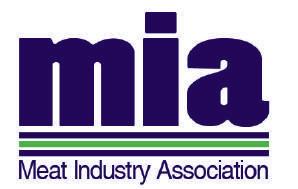
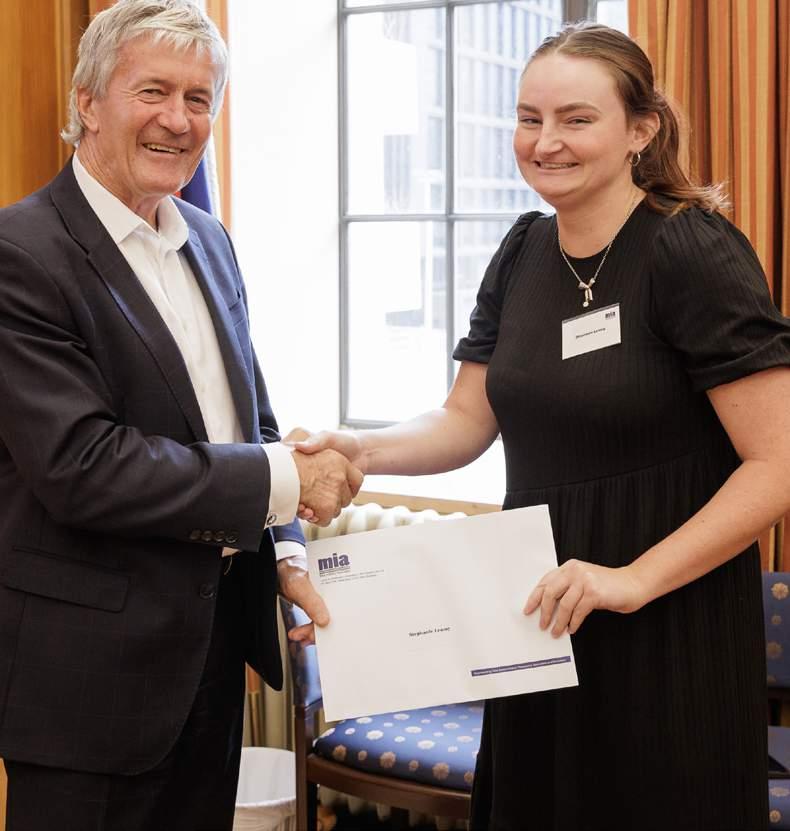
She admits that studying and working fulltime can be challenging, “but I like learning while also seeing it happen in real life”.
For example, last year she took a soil science paper which taught her more about the science behind the environmental sampling and monitoring her company does to ensure they are compliant with regulations.

Stephanie’s job is just one of thousands in the New Zealand meat industry, which employs more than 25,000 people across a range of areas, including processing, technical (science), marketing, livestock, people management and more.
“There are so many options available,” says Stephanie. “There is a career for everyone to match your interests and skills.”
Her advice? “Take every opportunity you can.”
Stephanie grew up on a sheep and beef farm in the Pohangina Valley in Manawatū and went to St Peter’s College in Palmerston North. In her final year there,
she took Biology, English, History, Geography, Religious Education and Statistics. “I kept my options open.”
“Biology, English and Statistics are the most helpful subjects as I now have to write audits and effectively communicate with all sorts of people, and I am doing a science degree, so understanding biology and being able to present and understand info in stats is critical.” She says business would have been helpful for the compulsory management and accounting papers she had to take.
Stephanie is unsure where her career will take her but she’s excited by all the possibilities. “Being able to live and work overseas would be cool.”
For more information on careers, scholarships and graduate positions available in the meat industry, visit www.meatyourcareer.co.nz


LEAVINGSCHOOL.CO.NZ | LEAVING SCHOOL ISSUE #26 A MENTOR AND PROVIDES NETWORKING AND TRAINING OPPORTUNITIES.
MEET
COMPLIANCE OFFICER 16
THE MEAT INDUSTRY
’M CONSTANTLY LEARNING AND INTERACTING
.
i
WITH ALL SORTS OF PEOPLE
STEPHANIE LEAMY
LOVING THE LIFESTYLE WORKING WITH MAJESTIC ANIMALS
writer PETER WHITE // photographer VIVIENNE LAURSEN


For RENEE WOOD, working with deer and beef animals is like having the best of both worlds.
Renee, 24, works on the renowned Raincliff Station in Pleasant Point, South Canterbury. Originally a sheep station, it is now a mixed-stock business, mainly focused on deer farming for velvet and trophies.
She is primarily based on the 130 hectares of land that are across the road from the main station. Her main responsibility is looking after the wagyu and dairy grazers, fattening the bulls and working with deer.
“Once that is all organised on a day-to-day basis, I will help wherever I am required. Often that is in the deer shed helping with velveting or artificial insemination, shifting stock in and out of the shed, drenching fawns, on the tractor or fencing. It is quite a broad role really,” says Renee.
“It is about 50–50 between working with deer and other animals. I love the variety and the awesome people I work with but most of all I just love the lifestyle farming brings – being outdoors every day with the stock [and] watching them grow from young to mature.
“Getting the bulls up to weight is always a good sense of achievement and just seeing them happy and healthy, doing what animals should do really.”
Renee has enjoyed getting to know many aspects of the deer industry, organised by very welcoming industry groups. She had a tour of deer farms and marketers and processors in 2020 and has attended Next Generation deer farmers’ conferences, meeting lots of enthusiastic young farmers with an interest in deer farming.

There are about 1,400 farms in New Zealand that run deer as part of their systems. Renee says they are majestic animals that require different handling than other farm animals.


“You have to be a lot more alert, calm and aware of where you are when you are working with them because they can be very responsive to sudden movements. I enjoy that because it is more of a challenge watching how they react but generally I have found them really great to work with.”
Renee grew up on farms and has always wanted to work on the land. She lived in America for two years with family and finished her secondary education by home schooling.

“I decided at 15, school wasn’t for me anymore, so I went and worked fulltime on two different pig farms for five years, before I first came down to South Canterbury and that was when I got introduced to deer farming.”
Renee has proven herself academically since she started working with Primary ITO work-based training. She has achieved the New Zealand Certificate in Pork Production (Levels 2 and 3) and New Zealand Certificate in Agriculture (Levels 3 and 4). She is halfway through a Diploma in Agribusiness.
“I just love learning. Primary ITO really helped, and I learnt a lot from them on the more technical side of farming. Not necessarily real hands-on things but the reason things are done the way they are – like feed budgets, feeding values and why you need to be feeding certain amounts at different times of the year.
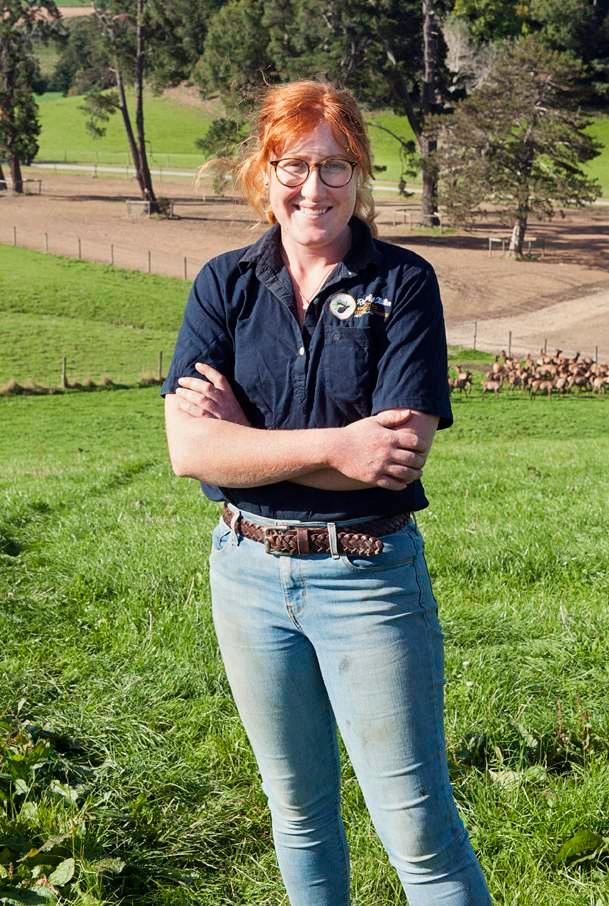
LEAVING SCHOOL DEER AND BEEF FARMING 17
PRIMARY ITO. SHE IS ALSO HALFWAY THROUGH HER DIPLOMA IN AGRIBUSINESS For more information on career options within deer farming, visit www.deernz.org
IT IS ABOUT 50–50 BETWEEN WORKING WITH DEER AND OTHER ANIMALS. I LOVE THE VARIETY AND THE AWESOME PEOPLE I WORK WITH BUT MOST of all i just love THE lifestyle farming brings
RENEE WOOD
“The other part I really enjoyed about Primary ITO was getting off farm to attend class and networking, and my training advisor Sharon Watson was amazing.”
I am the future of work
THE COMPLETE PACKAGE INSPIRED TO NURSE
 writer SARA CARBERY // photographer RENEE ZOTOV
writer SARA CARBERY // photographer RENEE ZOTOV
MARY THOMPSON always knew she wanted a job that involved helping people, “and nursing is the complete package,” says the 21-year-old.
“Even as a kid I was always so excited to go to the hospital and knew that’s where I wanted to work. I loved the empathy and kindness of nurses, which inspired me to be someone that could be there for families going through hardship.”
Mary graduated with a Bachelor of Nursing from Southern Institute of Technology (SIT) in Invercargill at the end of 2022. She is working as a registered nurse at Southland Hospital.
Working on the medical ward, she sees a wide variety of patients – including those with heart failure, serious infections, respiratory conditions and those requiring palliative (end of life) care.
“It’s a privilege working with people when they’re at their most vulnerable and knowing I’m making a difference,” she says. “I love my job as I’m always learning new things and no two days are ever the same.”

PRIVILEGE WORKING
Christchurch
Palmerston Nth - 18 May, CE Trust Arena.
Hawkes Bay - 23 May, Pettigrew Green.
Hamilton - 11 - 12 June, Claudelands.
Auckland - 15 - 17 June, The Cloud.
Wellington - 23 - 24 June, TSB Arena.




Dunedin Expo - 28 June, Town Hall.
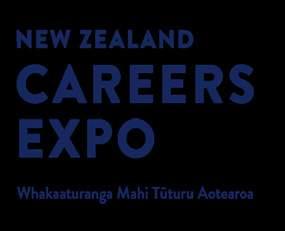
She also loves working in a fast-paced environment alongside different health specialists, such as physios and social workers, to provide care for patients and their individual needs.
Having been on the ward for only two months, Mary admits she has a lot to learn. “But I work alongside such a supportive team, I never feel afraid to ask a million questions.”
Graduating from James Hargest College at the end of Year 13, Mary was initially drawn to SIT because of their zero fees scheme. Living at home and having a part-time job meant she could pay the small course-related costs herself and finish her three-year degree with no student loan – “an amazing feeling”.
She appreciated that all the tutors at SIT had a nursing background, which meant they had a lot of practical knowledge to share and were “incredibly supportive”.
A highlight of her degree was the hands-on experience gained through clinical placements in a variety of settings, such as acute hospital wards, aged care, GP clinics and mental health services.

REGISTERED NURSE
18
The NZ Careers Expo: In-Person & Online @ careersexpo.org.nz Make smarter career choices. Visit the 2023 NZ Careers Expo & Go with Tourism Expo!
-
May,
.
11 - 13
CHCH Arena
LEAVINGSCHOOL.CO.NZ | LEAVING SCHOOL ISSUE #26
it’s A
WITH PEOPLE WHEN THEY’RE AT THEIR most VULNERABLE AND KNOWING
i’m MAKING A DIFFERENCE. I love my job AS i’m ALWAYS learning new things and no two DAYS ARE EVER THE SAME.
MARY THOMPSON
“I felt confident in my skills and knowledge when I graduated and had a good idea of where I could see myself working in the future.”
Mary says all the subjects she took in high school gave her a good foundation for nursing.
“Biology and Chemistry definitely set me up well for the health sciences papers as I had a good basic knowledge of how the body works. Maths was also incredibly helpful with the drug calculation component of nursing and English helped with essay writing and research papers.”
While nursing “definitely isn’t easy”, Mary says it’s an incredibly rewarding career that can take you anywhere. “I’ve learnt so much about myself throughout both my degree and my job.”
Her advice? “Even if you’re unsure on what you see yourself doing in the future, give nursing a go and you might just love it!”
Local Study Global Skills
SIT’s Zero Fees Scheme continues for 2023*
KEY FACTS
■ MARY THOMPSON HAS A BACHELOR OF NURSING FROM SOUTHERN INSTITUTE OF TECHNOLOGY IN INVERCARGILL



■ SHE WORKS AS A REGISTERED NURSE AT SOUTHLAND HOSPITAL ON THE MEDICAL WARD, WHERE SHE SEES A WIDE VARIETY OF PATIENTS

■ MARY RECOMMENDS NURSING AS A CAREER SAYING IT IS INCREDIBLY REWARDING, FAST-PACED AND NO TWO DAYS ARE THE SAME
For more information on studying a Bachelor of Nursing at Southern Institute of Technology (SIT), visit www.sit.ac.nz
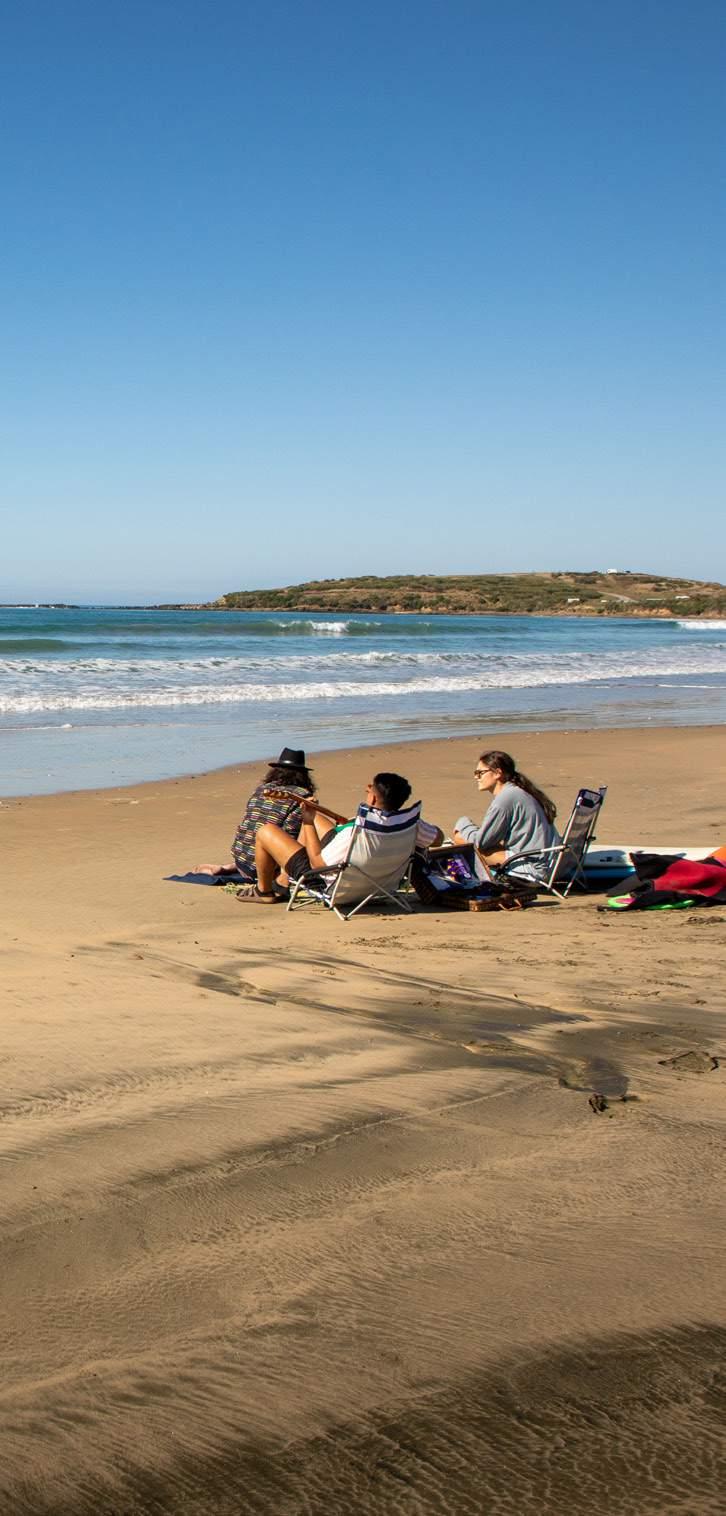

Enrol now at sit.ac.nz
*The Zero Fees Scheme (ZFS) is currently approved for 2023 but may be subject to change without prior notice.

WWW.OLIVERLEE.CO.NZ 19 LEAVING SCHOOL ISSUE #26 | LEAVINGSCHOOL.CO.NZ
REGISTERED NURSE 19
CONSIDER A CAREER IN CONCRETE GET THE RIGHT GROUNDING



ELLA WILSON is proud to represent the concrete industry on BCITO’s Apprentice Leader Group.
“I hope to inspire people to look at the trades as an option for a great career, especially concrete,” says the 25-year-old. “Concrete seems to be an aging industry and to get younger people, especially young females, into the trade would be incredible.”
Ella was introduced to the industry after taking a job in the dispatch office of Allied Concrete in Christchurch, a role she moved into from a sales position with Spark.
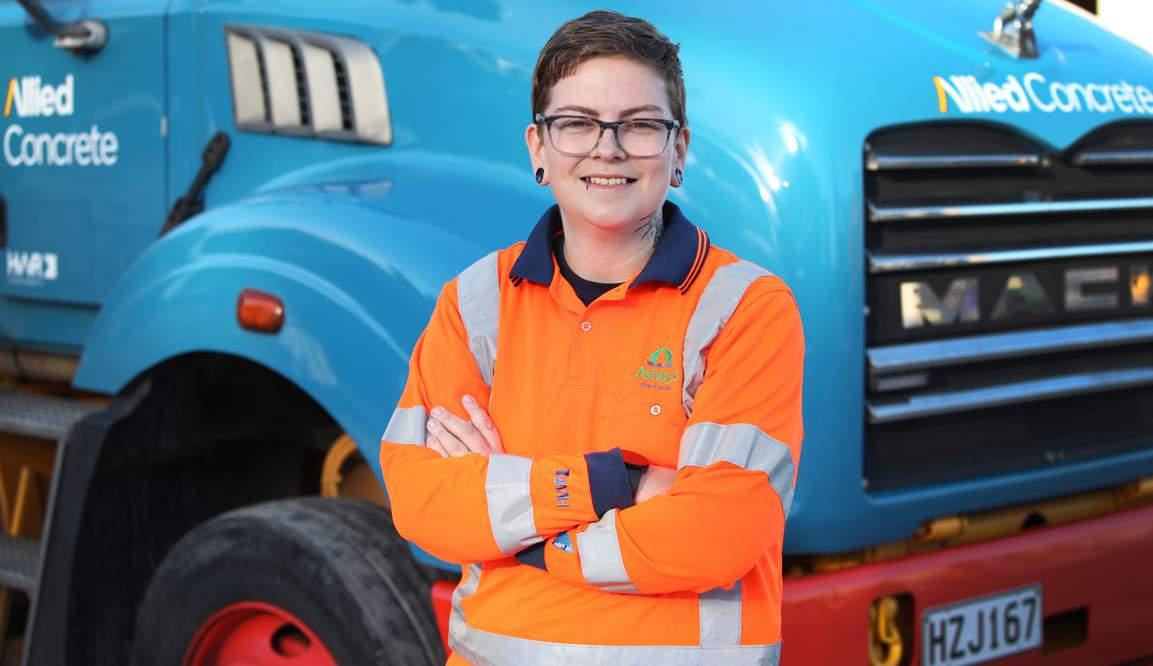
“After working in the call centre and growing up around the transport industry, I was itching to get stuck in.”
After sitting her class 2 licence, Ella was offered a cadetship. This involved training in all aspects of production in the concrete plant.
“I then found out about BCITO’s Certificate in Concrete Production (Level 4) and knew I had to do it. I enjoy pushing myself to learn more and develop and the apprenticeship was a great opportunity.”
CONCRETE
 writer SARA CARBERY photographer DEAN NORRIE
writer SARA CARBERY photographer DEAN NORRIE
Ella was greatly assisted in the apprenticeship by the on-the-job experience gained through the cadetship programme.
“I am thankful to be surrounded by people who have been in the industry for many years who all enjoy passing knowledge around. If I had any questions, I knew I could go to my BCITO training advisor or staff within the company.”
In her current role as second-in-charge for customer support/dispatch at Allied Concrete, Ella helps to manage dispatch staff and organise the booking schedule, which currently involves providing the groundwork concrete for the new Christchurch Stadium – Te Kaha. She also looks after the maintenance and servicing of the company’s fleet of trucks in Christchurch and helps around the yard when needed.
“I love the people in the industry and our customers are great to get along with. Each day is a new challenge and there is always something different happening.”


Of the subjects she took in Year 13 at Greymouth High School, Maths and Digital Media have been the most
useful. “Being able to calculate volume of concrete required for customers, calculating pricing for jobs, working out weights on trucks for how much concrete they can take, all play a big part of my role.
“Digital Media was useful to ensure I knew my way around a computer as 90 per cent of our systems are online. Being able to use Excel for spreadsheets and Word for documentation is an important skill.” In hindsight, Chemistry would have been helpful. “There are different aspects of chemistry involved in concrete production – from composition of aggregates to the additives we put in the concrete to cause different reactions.”
Ella doesn’t have a firm career plan but progressing into plant management or studying to become a concrete engineer are two options she’s considering. If you’re interested in a concrete apprenticeship, Ella’s advice is to “do it! The best way to learn is to get stuck into it. You can contact BCITO for options, or just reach out to your local concrete plant for information.”
For more information on starting a concrete apprenticeship with BCITO, visit www.bcito.org.nz
20 CONCRETE PRODUCTION 20
LEAVINGSCHOOL.CO.NZ | LEAVING SCHOOL ISSUE #26
SEEMS TO BE AN AGING INDUSTRY AND TO GET younger people, ESPECIALLY YOUNG FEMALES, INTO THE TRADE WOULD BE INCREDIBLE.
ELLA WILSON
Keen to start your apprenticeship?
The average student loan for university graduates is:
$ 41,457 $ 0.00
The average student loan for apprentices is:
Student loan data based on completing a three year degree prior to 2022. Source: Scarlatti October 2022
BCITO.org.nz/get started Find out more at
1963-04-23-SCHOOL
IT’S ALL ABOUT LIFESTYLE ENGINEERING AT SEA


ZAC THOMAS joined Sealord aged 16 and straight from school. He has not looked back as he builds his career out on the ocean.
Now 18, Zac is a trainee marine engineer for Sealord on board the vessel Rehua, which mainly catches ling and hoki fish. He joined Rehuarecently, having been promoted from working as a deck hand and trainee factory hand on Sealord vessel Aukaha
“At the moment, it is all about learning all the different systems to do with fuel and oil, and how the engine runs, refrigeration – there are lots of different things. You are sort of looking after the whole boat,” Zac says.
“In the future, I would like to get to be a chief engineer. I feel that would be a pretty good lifestyle and I enjoy that sort of work. It is definitely not mind-numbing work. You are actually thinking all the time.”
Zac loves the lifestyle he gets from working for Sealord. He is rostered six-weeks-on, six-weeks-off, and is looking forward to his first trip to Australia shortly. He likes having those decent periods of rostered time-off to work on his two cars he is building.
The next goal for Zac is to own his own home in the next few years.
“It is definitely a good thing, building your savings while you are away, and you also don’t have to pay for gas to go to work every day and you are not paying for food. While you are out at sea, it is all money in the pocket really.”
With so much time at sea, it is absolutely vital that all the crew get on well. Zac says the Sealord crew have been like a second family to him ever since he started.
“You are living with them for half your life, away at sea, so it is so important. It is all about keeping the morale up. Everyone looks out for each other, so you rely on having that good relationship with the crew.
“They are good people and everyone is really welcoming when you first go to sea.”

Zac says the views and close-up glimpses of whales and dolphins are always cool to see but one of his highlights is taking the little rescue boat into port to pick up supplies or drop someone off.
writer PETER WHITE photographer LUKE MARSHALL
IT IS DEFINITELY NOT mind-numbing work YOU ARE ACTUALLY THINKING ALL THE TIME

Zac went to Waimea College in Nelson. Mechanical Engineering was definitely his favourite subject. He left during Year 11, after turning 16, to follow his dream of going to sea with Sealord.
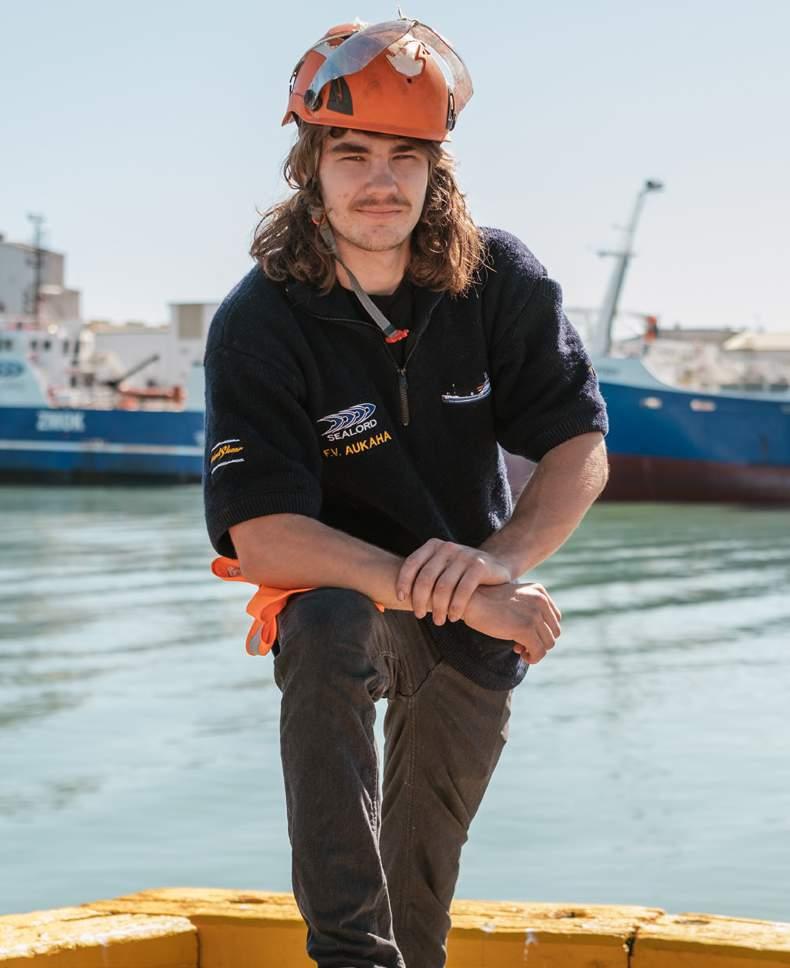
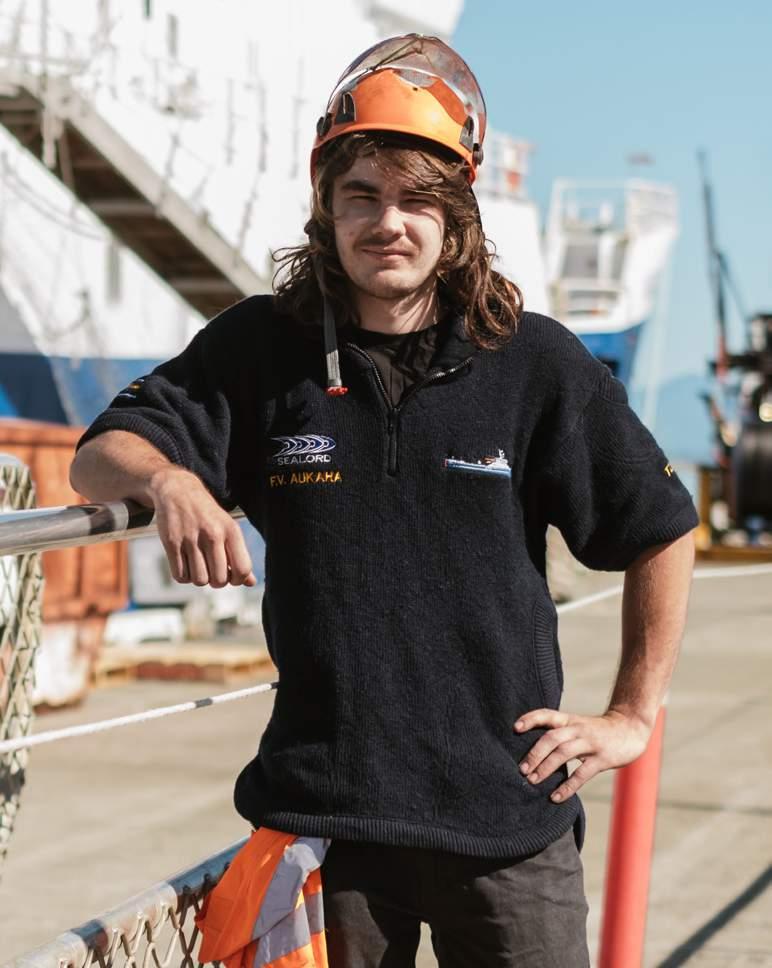
“I had always thought about it because my dad has worked for Sealord for a long time and I grew up hearing about it. Now with that passion for engineering that I have always had, it is just cool to be able to combine the two.”
■ ZAC THOMAS WORKS FOR SEALORD AS A TRAINEE MARINE ENGINEER ON BOARD THE VESSEL REHUA
■ HE HAS RECENTLY BEEN PROMOTED FROM WORKING AS A DECKHAND AND TRAINEE FACTORY HAND ON AUKAHA


■ ZAC RECOMMENDS SCHOOL LEAVERS JUST GIVE IT A GO – SAYING WHATEVER IT IS THAT YOU WANT TO DO MIGHT NOT BE AS DIFFICULT AS ANTICIPATED
His best tip for school leavers is if you want to do something, just give it a go. It may not be anywhere near as difficult as you think it will be.
www.sealord.com/working-at-sealord www.seafood.co.nz/careers and www.deepsea.co.nz

LEAVINGSCHOOL.CO.NZ | LEAVING SCHOOL ISSUE #26 MARINE ENGINEER
22
ZAC THOMAS
FAST-PACED AND EXCITING


WORKING TO SAVE LIVES
“Working for Hato Hone St John is all about having a passion for helping people in their time of need,” says CHARLOTTE BROMS.
“No two days are the same. You never know what you are going to go to and I think that is why it is exciting.”
Charlotte joined Hato Hone St John Ambulance Service 12 years ago and became the Christchurch Area Operations Manager (AOM) last year.
“The role requires having the strategic oversight of Christchurch, Banks Peninsula and also the Chatham Islands. It is a varied role as you have the metro, city environment, plus rural areas as well. It is taking into account all those factors to ensure you have appropriate resourcing in place so that our community receives the right response.”

Before becoming the AOM, Charlotte had spent the majority of her career with Hato Hone St John as a front-line ambulance officer. She says going to an incident is all about being focussed on what you could be faced with.
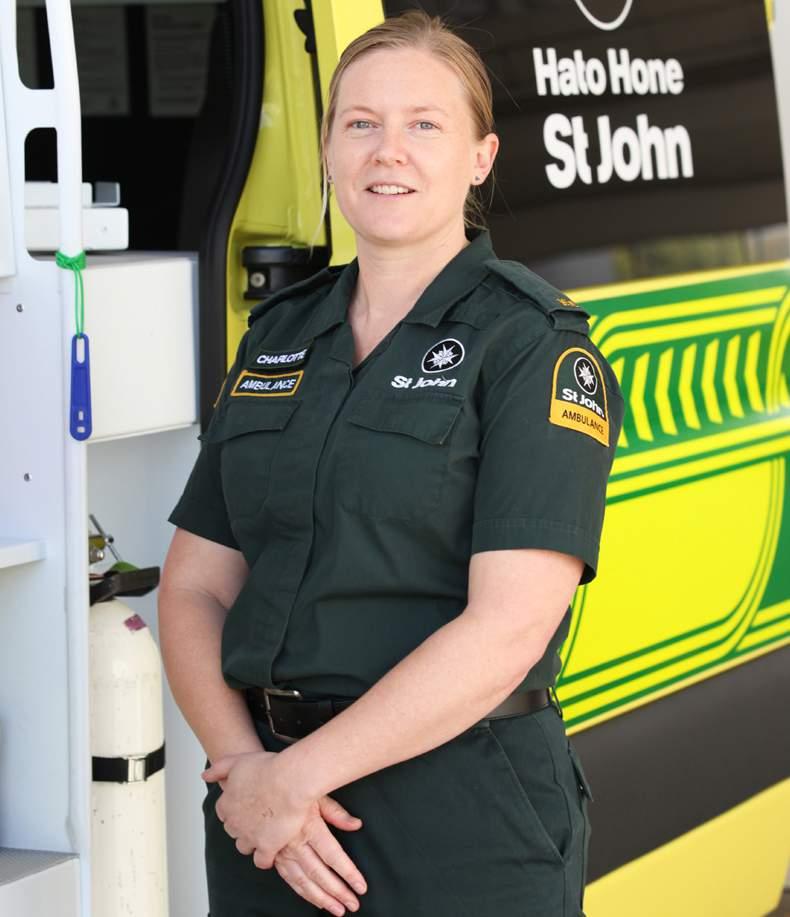
“It can vary from a road traffic crash and trapped patients to people with dementia who may be a bit confused and require assistance.
“Each incident you are looking at the notes, determining what you potentially could come across and what you might need to do to help that patient. It could be to give medicine or reassurance or life-saving interventions like CPR.”

Charlotte’s journey to join Hato Hone St John started later than others.

She was working in the corporate world before she decided to join as a volunteer ambulance officer. Her mother was a nurse, so Charlotte always had an interest in health care. While at Burnside High School, she worked in rest homes.
“The reason I joined as a volunteer was to see what it was all about and to see if I could handle it. Then I started the training, got the bug and found it quite exciting. I completed the National Diploma in Ambulance Practice and then did my degree through to a paramedic and now have moved into management.”
Charlotte studied remotely for her Bachelor of Health Science majoring in Paramedicine from AUT University. “You can do it by distance as well and I did it while working, which is quite handy. It is a great qualification.
KEY FACTS
writer PETER WHITE photographer DEAN NORRIE
MEDICINE OR REASSURANCE OR LIFE-SAVING INTERVENTIONS LIKE CPR
It sets you up for what you are doing as a paramedic on the road and in the community. It has a good mixture of academic and practical, where you are out there learning the skills and on the ambulance as well.”
Hato Hone St John is a viable option for students to consider. There are several clinical pathways to choose from to get started, including becoming a first responder volunteer ambulance officer, then undertaking Hato Hone St John’s Waka Manaaki Emergency Medical Technician residential programme.

LEAVING SCHOOL ISSUE #26 | LEAVINGSCHOOL.CO.NZ
Charlotte says if you like a fast-paced role, where you are out there helping people and literally saving lives, then consider a career with Hato Hone St John.
EACH INCIDENT YOU ARE looking AT THE NOTES, DETERMINING WHAT YOU POTENTIALLY COULD COME ACROSS AND WHAT YOU MIGHT NEED TO DO TO HELP THAT PATIENt IT COULD BE TO GIVE
CHARLOTTE BROMS
23 PARAMEDICINE For
St John
■ CHARLOTTE BROMS WORKS AS THE CHRISTCHURCH AREA OPERATIONS MANAGER AT HATO HONE ST JOHN AMBULANCE SERVICE ■ SHE BEGAN AS A VOLUNTEER AMBULANCE OFFICER, THEN SHE COMPLETED THE NATIONAL DIPLOMA IN AMBULANCE PRACTICE AND BACHELOR OF HEALTH SCIENCE MAJORING IN PARAMEDICINE FROM AUT UNIVERSITY, AND WORKED AS A PARAMEDIC ■ CHARLOTTE SAY NO TWO DAYS ARE THE SAME AND THAT MAKES WORKING AT HATO HONE ST JOHN EXCITING
more information on career opportunities with Hato Hone
, visit https://join.stjohn.org.nz/ ambulance-careers/home
CAREERS NEW ZEALAND

A fantastic resource providing expert advice and confidential, free information on all things education and employment – including choosing school subjects, enrolling in study or training and applying for jobs. Call their free advice line on 0800 222 733, free text CAREER to 434 or chat online by visiting their website at www.careers.govt.nz
JOB HUNTING
These websites will help you find a job!


Allied Work Force – www.awf.co.nz











Trade Me Jobs – www.trademe.co.nz/jobs
MyJobSpace – www.myjobspace.co.nz
Student Job Search – www.sjs.co.nz



Do Good Jobs – www.dogoodjobs.co.nz
Work and Income –www.job-bank.workandincome.govt.nz Seek – www.seek.co.nz


UNIVERSITY/POLYTECHNIC OPEN DAYS 2023

University and Polytechnic open days are a fantastic way of getting to know more about your proposed courses of study, meet fellow students and become familiar with the campus. If you’re choosing between several tertiary providers, you may find open days help you make your choice.
Albert Einstein
* Accurate at time of print. Please check providers’ websites for any changes.
Millions of dollars are available and applications close throughout the year.

Talk to your careers advisor or visit www.moneyhub.co.nz/students
worry and depression can surface. www.thelowdown.co.nz is full of ideas and people who can help you get unstuck and get to a better place.


Oprah Winfrey

IMPORTANT NOTICES 24
Alone we can do so little, together we can do so much.
Helen Keller
to build bridges, to change the world.
Learn from yesterday. Live for today. Hope for tomorrow.
Tertiary provider Date Website UNIVERSITY OF OTAGO 7–8 May www.otago.ac.nz OTAGO POLYTECHNIC 7–8 May www.op.ac.nz UNIVERSITY OF WAIKATO Hamilton Campus 26–27 May www.waikato.ac.nz UNIVERSITY OF WAIKATO Tauranga Campus 9 June www.waikato.ac.nz MASSEY UNIVERSITY Manawatū Campus 2 Aug www.massey.ac.nz MASSEY UNIVERSITY Auckland Campus 11 Aug www.massey.ac.nz SIT I nvercargill Campus 25 Aug www.sit.ac.nz VICTORIA UNIVERSITY 25 Aug www.victoria.ac.nz MASSEY UNIVERSITY Wellington Campus 25 Aug www.massey.ac.nz UNIVERSITY OF AUCKLAND 26 Aug www.auckland.ac.nz AUCKLAND UNIVERSITY OF TECHNOLOGY 26 Aug www.aut.ac.nz UNITEC TBC www.unitec.ac.nz UNIVERSITY OF CANTERBURY 8 Sept www.canterbury.ac.nz
LEAVINGSCHOOL.CO.NZ | LEAVING SCHOOL ISSUE #26
Term 2 holiday:
1 July–16 July 2023








































Term 3 holiday:
23 September–8 October 2023
Term 4 holiday:
No later than 20 December 2023 through to no earlier than 29 January 2024




Information sourced from Ministry of Education, visit www.education.govt.nz

we fall.
YOUTHLINE available 24/7 0800 376 633 or free text 234 www.youthline.co.nz
WHAT’S UP Mon–Fri noon–11pm & Sat/Sun 3pm–11pm 0800 942 8787 www.whatsup.co.nz


ALCOHOL DRUG HELPLINE 0800 787 797 available 24/7 www.alcoholdrughelp.org.nz
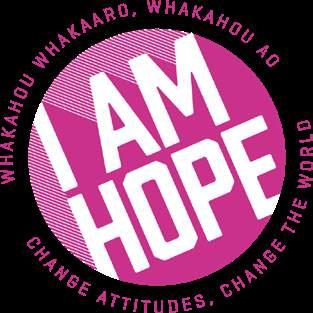


MAKE YOUR VOTE COUNT
It’s always important to make sure that you are on the electoral roll and ready to take part in national and local elections. How else can you be sure that you are ready to have your say on the big issues affecting you and your family?
www.elections.org.nz/voters
Admission to the Expo is free for all visitors. www.careersexpo.org.nz

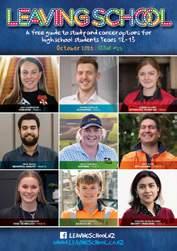

AND LOANS
If you are about to leave school and you’re looking at tertiary study, there’s going to be a lot to think about. If it’s anything to do with financial support while you’re studying, StudyLink can help and you need to apply by 16 December 2023.
Sign up for info at www.studylink.govt.nz
opportunities to develop your skills in new and interesting ways as well as providing valuable real-world experiences – all important attributes to your CV when applying for your first job!

25 IMPORTANT NOTICES
So many of our dreams at first seem impossible then they seem improbable and then, when we summon the will, they soon become inevitable.
Christopher Reeves
Don’t settle for average. Bring your best to the moment. Then whether it fails or succeeds, at least you know you gave all you had.
CHRISTCHURCH 11–13 MAY PALMERSTON NORTH 18 MAY 23 MAY HAMILTON 11–12 JUNE AUCKLAND 15–17 JUNE WELLINGTON 23–24 JUNE DUNEDIN
JUNE
Angela Bassett
28
in living lies not in never falling, but in rising every time
Visit www.keytolife.org.nz These magazines and past issues can be read online at www.leavingschool.co.nz LEAVING SCHOOL ISSUE #26 | LEAVINGSCHOOL.CO.NZ
Nelson Mandela
BE KEEN TO GIVE IT A GO GET AHEAD WITH BIG MACHINERY
Working every day with heavy machinery has been an excellent career choice for LAYLA HUNTER and one she recommends to other young women leaving school.
“I like how it always challenges you and makes you think outside the square. You always have to be resourceful and think on your feet out on-the-job. You really do need to have your head in the game,” says Layla.
The 23-year-old from Christchurch is a heavy machinery technician with Komatsu, a Japanese multinational corporation. Layla is in the final year of Komatsu’s four-year apprenticeship programme. She is qualified with a New Zealand Certificate in Heavy Automotive Engineering (Level 4) and is currently working towards her next qualification, a New Zealand Certificate in Automotive Electrical Engineering (Level 4).
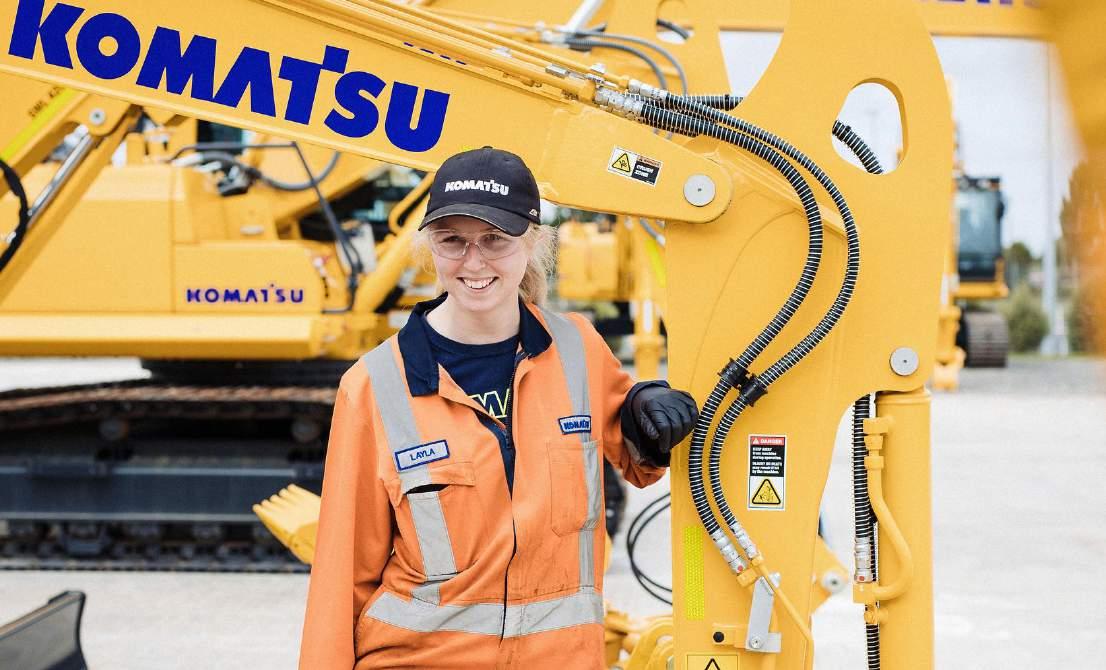
She is grateful to have been awarded a MITO/Inspiring Futures Foundation scholarship, which she is using towards this extra qualification.
“I found MITO’s off-site job training quite helpful with getting the units signed off and getting your qualification completed. It was all helpful and relevant.”


Layla left Waimate High School after Year 12. During her childhood, she thought about being a vet, a teacher or a nurse, but after leaving high school, she wanted to learn how to fix her own car. After a few years of hesitation with nursing and working in different industries, she looked into becoming a mechanic. She was nervous going into her pre-trade course but had the mindset of “even if I don’t like it, I will still have some very useful skills from it”. After completing her studies, she had an interview with Komatsu.
More females are joining the heavy machinery industry, which is a positive development. Layla finds she is mostly treated the same as her male workmates.
“I think it also comes down to how each individual approaches it. Some girls don’t really want to get


■ LAYLA HUNTER IS A HEAVY MACHINERY TECHNICIAN WITH KOMATSU, WHERE SHE IS IN HER FINAL YEAR OF KOMATSU’S FOUR-YEAR APPRENTICESHIP PROGRAMME
■ SHE HAS A NEW ZEALAND CERTIFICATE IN HEAVY AUTOMOTIVE ENGINEERING (LEVEL 4) AND IS WORKING TOWARD A NEW ZEALAND CERTIFICATE IN AUTOMOTIVE ELECTRICAL ENGINEERING (LEVEL 4)
■ LAYLA IS A RECIPIENT OF A MITO/INSPIRING FUTURES FOUNDATION SCHOLARSHIP
stuck in as much as others do. The job is physically demanding for both women and men. I mean you can be working in the elements doing very physically demanding work but we’re equipped with the right gear and training to deal with that.” The future looks bright for Layla and those coming through their training to fill the gaps in the industry. Layla can see a long-term future with Komatsu but her short-term goal is to get as competent at her job as she can.
“I want to be respected in my line of work. Later on, if I want to take a less physical approach, I could look at an office role with the company.
“I am not looking at that at the moment, but there are always options available through Komatsu.” Her advice to school leavers is to give it a go, saying that you will only regret what you don’t try.
The skills and qualifications that are on offer are really handy to have, and if you don’t like it, at least you have given it a go.

For more information on career opportunities with Komatsu, visit https: //www.komatsu.co.nz /company / careers-with-komatsu / find-my-next-job
For more information on applying for MITO / Inspiring Futures Foundation scholarships or starting an apprenticeship through MITO, visit www.mito.org.nz
LEAVINGSCHOOL.CO.NZ | LEAVING SCHOOL ISSUE #26 HEAVY MACHINE TECHNICIAN 26
writer PETER WHITE image credit KOMATSU
I LIKE HOW IT always challenges you and makes you think outside the square
LAYLA HUNTER


Komatsu Apprentice Program https://www.komatsu.co.nz/company/careers-with-komatsu/apprentice-program Creating value together Obtain valuable skills and receive nationally recognised job qualifications with a leading global organisation – all while earning an income. Register your interest today! 0800 566 2878 | komatsu.co.nz
AIM FOR AN APPRENTICESHIP ON THE MOVE



CHASE SHERIDAN has almost finished his two-year drainlaying apprenticeship and is excited about the future ahead.
The 22-year-old works for All Septic and Drainage Ltd in Mosgiel, Otago. He enjoys the different jobs he gets to work on and operating the machinery most of all. Variety is a big part of what he loves about being a drainlayer.
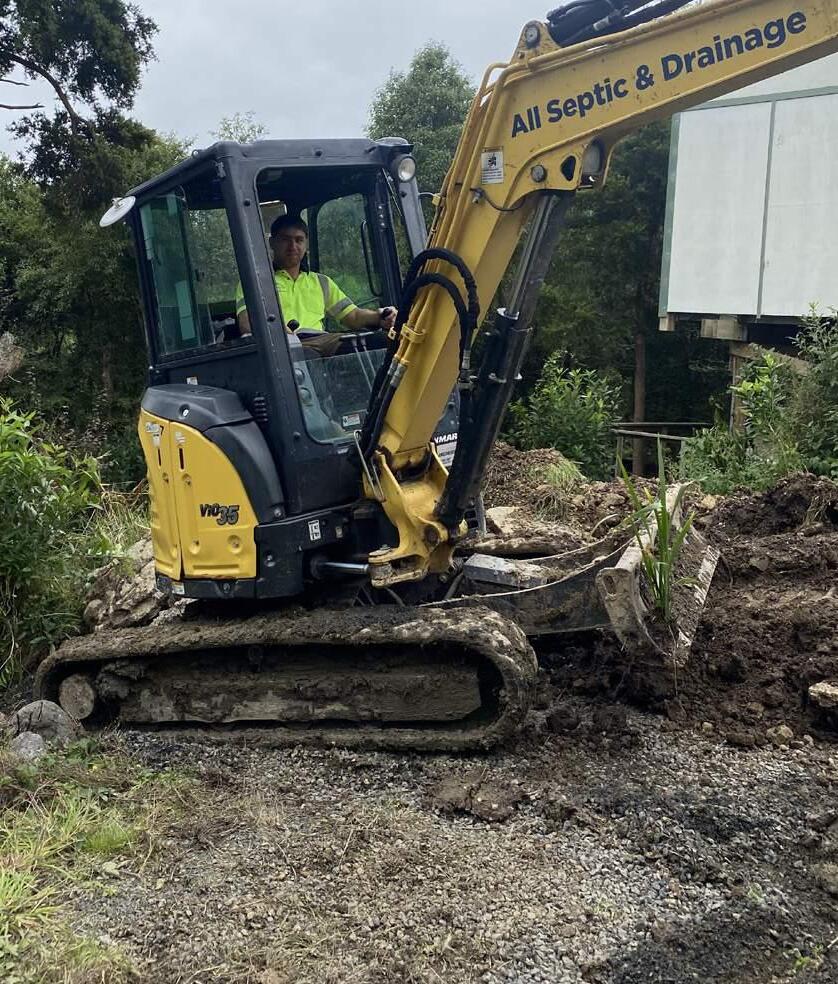
He mainly works on residential drainage jobs, like septic tanks, effluent fields and water connections to the mains from new residential sites.
“I started off working on the machinery when I first joined All Septic and Drainage before I started my apprenticeship. You are never stuck in one place as you usually spend just a few days on a job site and then you are off somewhere else. I just love it,” says Chase.
He says the key to succeeding as a young worker not long out of school is all to do with being a good, hard worker.
“There is no doubt that having the right work ethic and attitude will get you anywhere. As a young person coming into the industry, it is important to work hard, plus keep the older guys happy and just do your best.”
Chase is grateful to have done his apprenticeship through www.masterlink.co.nz. Masterlink is owned by Master Plumbers and places apprentices with host companies for on-job training all over New Zealand. Masterlink specialises in mentored plumbing, gasfitting and drainlaying apprenticeships; supporting their apprentices every step of the way. “Masterlink organise everything with the block courses we do,” says Chase. “All we have to do is drive to the course and they book the hotel and pay you an allowance for diesel and food. They organise all that sort of stuff for any courses you need and Masterlink pay your wages while you are on the course. We are kept up-to-date with regular meetings and progress reports.”
The future is looking bright for Chase with the potential to be in charge of the company within a few years. He has made giant strides since leaving the North Island’s East Coast to travel to Dunedin four years ago.
Chase moved around a lot growing up. He went to 10 different schools, including two years living in Canada and one year in America. He particularly enjoyed his three years at Tolaga Bay Area School. Chase is one of the few students from the tiny catchment to be selected for the prestigious Hurricanes Under-17 rugby team. He later went on to play for both the Under-18 and Under-20 Hurricanes teams.
For Year 13, Chase moved to Gisborne Boys’ High School where he took PE Rugby, Calculus, History,


Physics and Biology. He was keen on working with machinery right through his school years but his move to Dunedin was due to another reason.
“I left school and started driving machinery and playing rugby, but I knew I needed to move out of town. My girlfriend started at Otago University and I always wanted to move down south so I went to Dunedin and have been here ever since.”
LEAVINGSCHOOL.CO.NZ | LEAVING SCHOOL ISSUE #26 28 writer PETER WHITE // photographer STEPHAN POLLOCK
DRAINLAYER
YOU ARE NEVER STUCK IN ONE PLACE AS YOU USUALLY SPEND JUST A FEW DAYS ON A JOB SITE AND THEN YOU ARE OFF SOMEWHERE ELSE . I JUST LOVE IT .
CHASE SHERIDAN
Supporting future tradies now & into the future
There are plenty of reasons why Kiwi tradies trust Plumbing World to have their back. So here are a few of the things we’re doing behind the scenes to support our mates looking to join the trade.
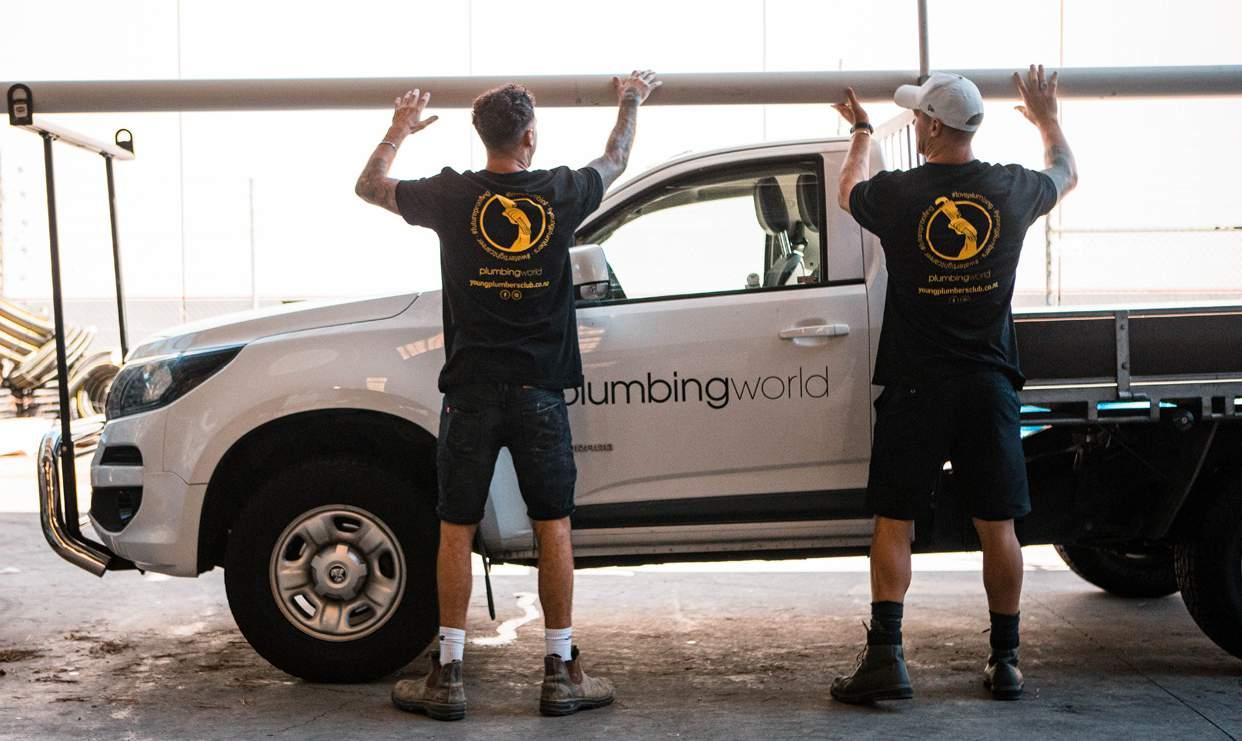
Championing the next generation. The plumbing trades are an attractive career option for all school leavers to consider, so we’re proud to continue to support the Masterlink and ATT apprenticeship schemes, especially in these uncertain times. We’re also very proud of our Young Plumbers and Young Plumber of the Year initiatives as they help future proof our Industry and support and celebrate excellence.
Keeping business moving.
We work alongside Master Plumbers and closely with our suppliers advocating to MBIE and the Government on behalf of the plumbing trades to ensure business keeps functioning while global supply is disrupted.
We’re your Team in Black
Supporting equality. We’re focused on providing a supportive and inclusive culture for all our team members. Plumbing World is also a NAWIC supporter (National Association of Women in Construction) and is behind the Women in Trades Expo series.
Keeping the flame alive.
We’re dedicated to getting to a zero carbon future so are working to ensure our operations are efficient. We are also focused on instilling confidence in the future of NZ’s energy mix as we move away from fossil fuels to further cut our countries emissions.
At Plumbing World we’re committed to developing our people throughout their careers. To support this we have teamed up with all the best industry players to make our industry hum. We’re here to keep our industry safe, inclusive and open so everyone’s journey is rewarding. If the Plumbing trades sound good to you please drop us a line.
plumbingworld.co.nz
AWARD-WINNING APPRENTICE IGNITE THE SPARK IN YOUR CAREER
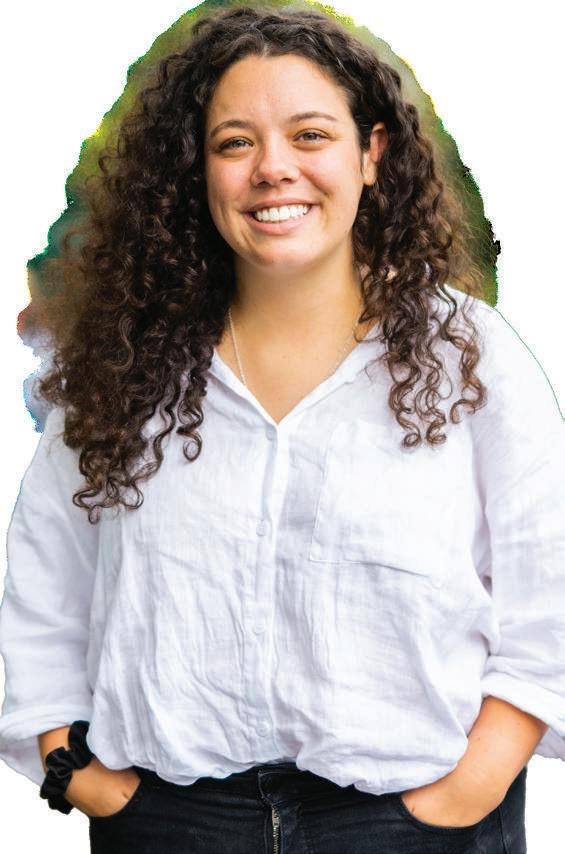
Winning the Apprenticeship Training Trust (ATT) Apprentice of the Year award in March means so much to NICHOLAS HATTINGH.
ATT is an independent non-profit trust that has employed more than 1000 apprentices in New Zealand over the last 32 years.
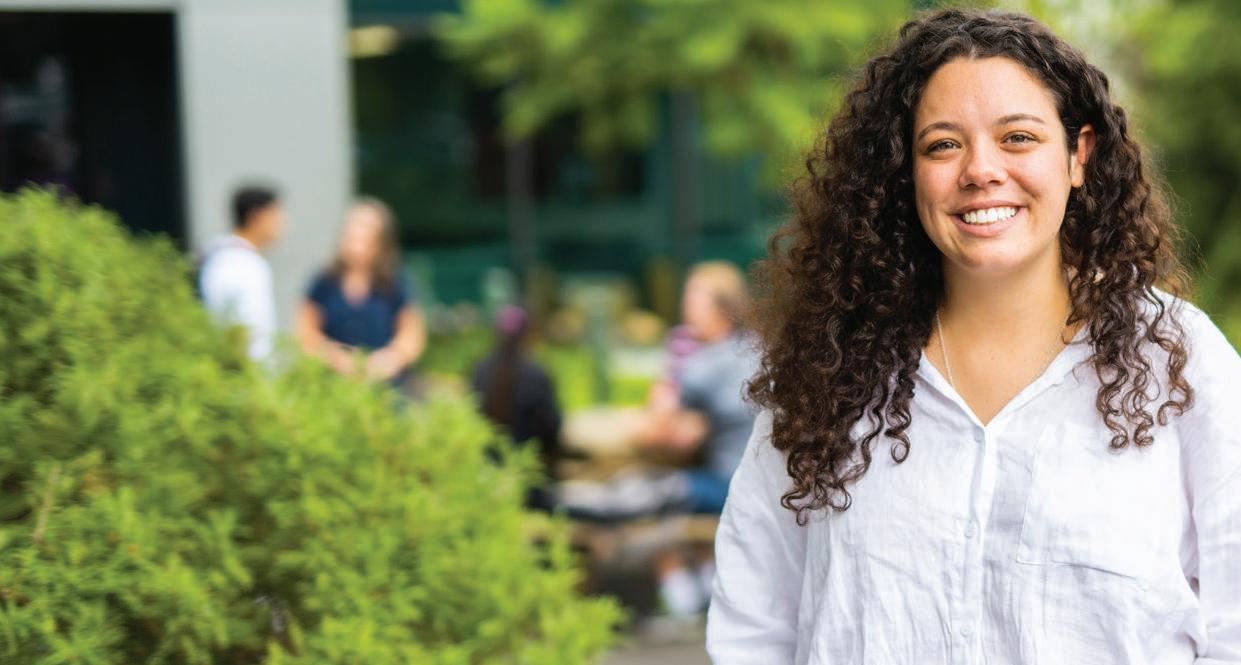
Nicholas says his account manager at ATT put him up for the award, which was based on a number of factors.
“I assume it was on bookwork, the work I do at tech and the work I do on-the-job. It means a lot. It was quite surreal, and I am really proud of it,” he says.
Nicholas, 23, is just over halfway through his four-year apprenticeship through ATT.
He is placed with host business Griffin’s Foods Ltd in Papakura where he is one of four electricians tasked with keeping the huge biscuit factory operational.
He specialises in industrial maintenance work, which is different to the domestic work many electrical apprentices focus on.

“I learn something new every day and I don’t think I will stop learning for years after my apprenticeship is over to be honest.
I don’t just have to be an electrician. I can go into automation and different projects.”

There is pressure on him to fix problems that occur as quickly as possible. Nicholas says going to a broken machine and fixing it, so it is back up and running, is so rewarding.
“A big part of what I do is being able to think on your feet. You have to be quite decisive and think about your decisions as well because where I work is fast-moving food products. Every hour a machine is down they are losing money.
“I get quite proud of my work because what I do is on display for a whole factory of people. There is no room for half-arsed work. You have to do things properly. It is definitely raising my standards and preparing me for the future when I am out there on my own.”
Nicholas has some future goals he is working towards. His main plan
ELECTRICIAN 30
writer PETER WHITE photograph NIMITA DUTT
IN MY FIELD, THERE IS SO MUCH TO DO AND IT WILL OPEN UP A LOT OF DOORS IN TERMS OF WHAT I CAN DO IN THE FUTURE . I DON’T just have to be an electrician . I CAN GO INTO AUTOMATION AND DIFFERENT
PROjectS .
NICHOLAS HATTINGH
“What I love about where I am is just the variety of work. There is just so much to learn.
Looking for a rewarding, hands-on career in health? Chiropractic is a natural approach to health and wellbeing through focusing on care of the spine and nervous system. Scan QR code for more details or visit chiropractic.ac.nz/discover Discover how you can make a positive impact in the lives of others through a hands-on and holistic approach to health and wellbeing. JOIN US AT OUR OPEN DAY Saturday 20th May, 12.30 - 3pm New Zealand College of Chiropractic 6 Harrison Road, Mount Wellington, Auckland
“In my field, there is so much to do and it will open up a lot of doors in terms of what I can do in the future.
■ NICHOLAS HATTINGH IS COMPLETING A FOUR-YEAR ELECTRICAL APPRENTICESHIP THROUGH APPRENTICESHIP TRAINING TRUST. HE IS PLACED WITH HOST BUSINESS GRIFFIN’S FOODS LTD IN PAPAKURA

■ HE WON THE APPRENTICESHIP TRAINING TRUST APPRENTICE OF THE YEAR AWARD IN MARCH




■ NICHOLAS STUDIED CALCULUS, ENGLISH, ECONOMICS, BUSINESS AND PHYSICS IN YEAR 13. HE TOOK A GAP YEAR AND THEN COMPLETED TWO YEARS OF STUDY IN MARINE ELECTRIC TECHNOLOGY BEFORE STARTING HIS APPRENTICESHIP

Become an apprentice today!
is to stay for another year at Griffin’s after he qualifies to get some more experience.










Before starting his apprenticeship, he studied marine electric technology for two years, so he wants to work in Australia on some of the heavy industrial mines or overseas on oil rigs or drilling vessels.
Nicholas went to Macleans College in Auckland and studied Calculus, English, Economics, Business and Physics in Year 13. He took a gap year after he left school and says he cannot recommend enough that young people consider moving into the trades.
“It’s a four-year sacrifice during your apprenticeship but once you are qualified as a New Zealand tradesman, you can go anywhere in the world basically.” 0800






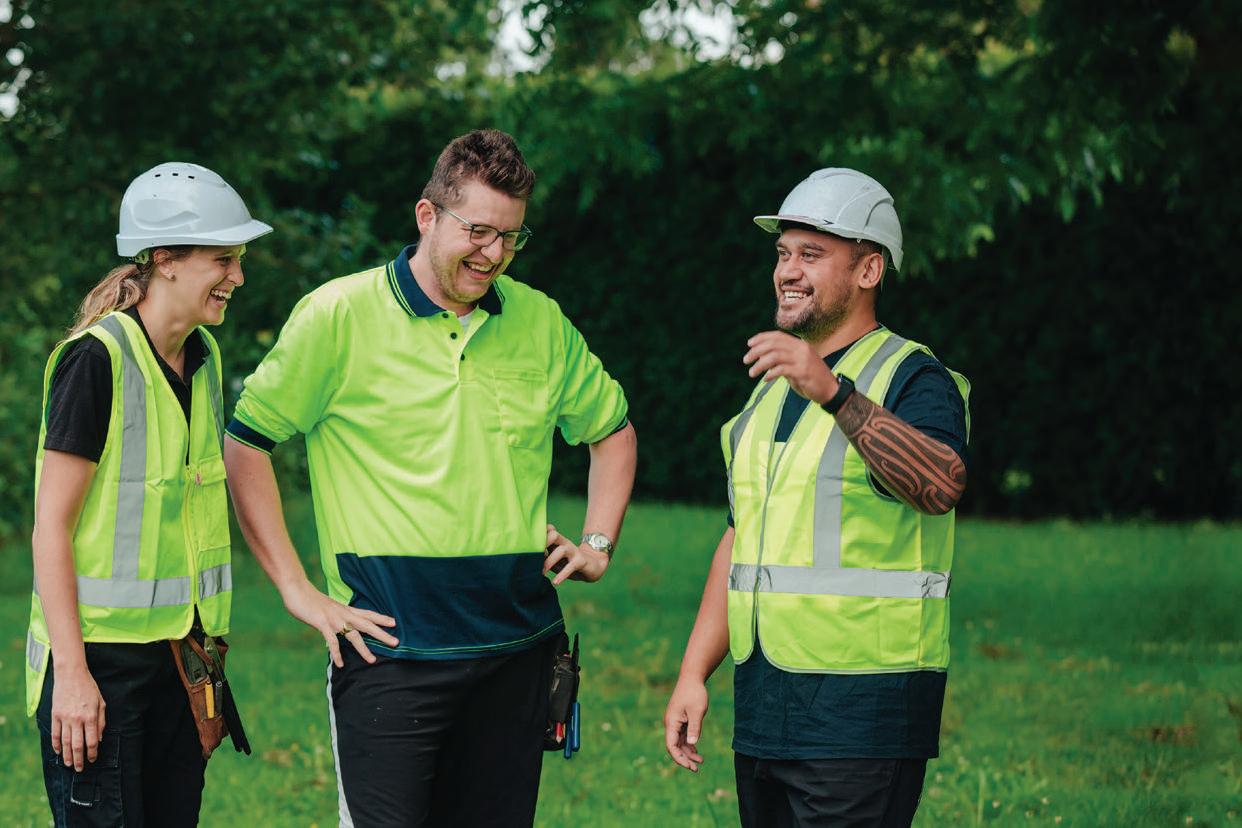

ELECTRICIAN 31
187 878
att.org.nz
|
Electrical | Plumbing | Gasfitting
Drainlaying
|
BUILD A POSITIVE FUTURE HANDS-ON WORK OUTSIDE
JOHN ALLAN is delighted to have completed his three-year building apprenticeship in April. For the 23-year-old from Wellington, it has been a positive experience from start to finish.
“I definitely liked meeting the different people along the way, from co-workers to other sub-contractors and other trades people, and the mentorship from the tutors I have had,” says John.
writer PETER WHITE photographer MARTY MELVILLE
“Working outside is a definite upside and seeing what I have created at the end of the day is great. To have something tangible when you finish a build [that] you can go back and look at it in the future is huge for me.
“There is also the satisfaction you feel when you finish a project and hand over a house or a deck and see the customer happy with what they have got.”
Starting with little knowledge of the building trade is daunting for most people but John says you just have to stick at it.
“At school it was mostly bookwork while carpentry is a lot more hands-on. I never did woodwork at college, so it was definitely a transition to hands-on building and the early 7.30am starts too.
“Reading plans was difficult at first because of the complexity of building a house. There are so many different components to it. I felt it all came quite naturally to me though and it is good now to see how far I have come and the amount of knowledge I have developed.”
John thoroughly enjoys working for De Bes Contracting in Wellington. He was helped though his carpentry apprenticeship by Building & Construction Industry Training Organisation (BCITO), New Zealand’s largest provider of apprenticeships.
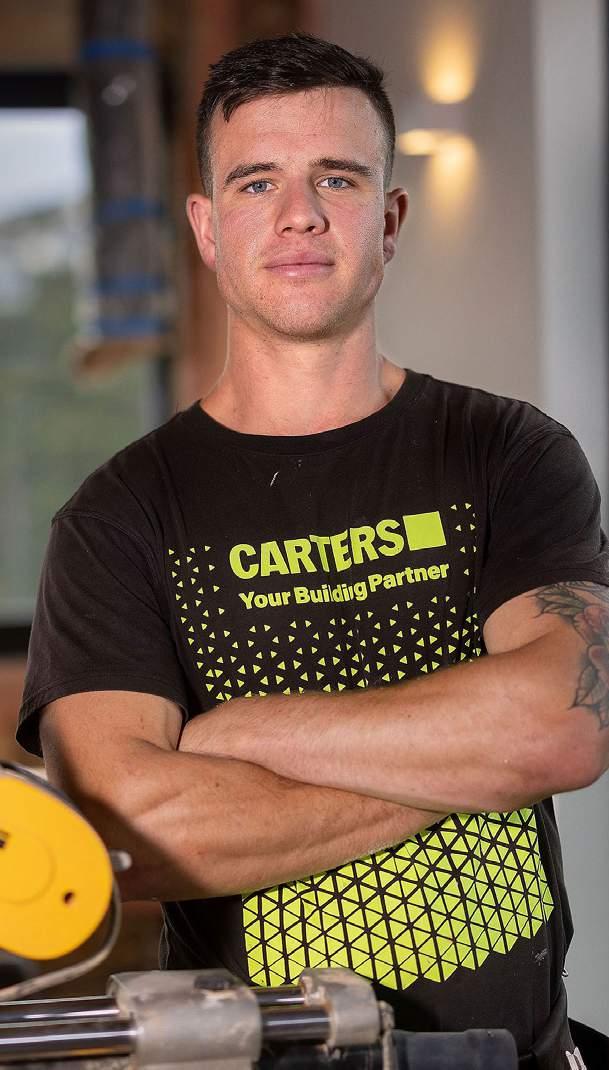
“I found my experience with BCITO really good. With the good resources they provide us with at the start, it was easy to read and get ahead. They make it really simple and although the build process can be quite complex, they seem to be able to provide the learning in a way that makes it understandable.








“My Training Advisor has been really involved with my learning and supported me above and beyond what he had to do. He did after-hours Zoom calls during COVID-19 time and when I was doing my Apprentice of the Year last year he came out and supported me.”
The building industry is booming in New Zealand. John can see a bright future ahead as there are so many opportunities within the industry to get ahead.
He would love to own his own building business in a few years and “being my own boss and being in full control of what I can choose to do is where I would like to get to”.
John attended Wellington College and in Year 13, he took English, Calculus, Statistics, Design and Chemistry. He also had a part-time job as a landscaper, which really sparked his desire to work outside.
His advice to others interested in building is to “be resilient because even when something gets tough you need to stick to it and see it through”.

BUILDER
LEAVINGSCHOOL.CO.NZ | LEAVING SCHOOL ISSUE #26
WORKING OUTSIDE IS A DEFINITE UPSIDE AND SEEING WHAT I HAVE CREATED AT THE END OF THE DAY IS GREAT
JOHN ALLAN
QUANTITY SURVEYOR VARIED PATHWAYS ON OFFER




Not many quantity surveyors were previously florists but KATE THOMAS says the skills she learnt as a florist have been invaluable in her new career.
Kate has been working as a quantity surveyor (QS) for Hawkins in Hamilton since January, after a radical change of career that came about after returning from Australia due to COVID-19.


“I was a florist, which is a very different career path, and I have come into this later in life. They are two very different fields but there are interchangeable skills to carry over into construction,” says Kate. “Logistical things and people skills are obviously a big help. Numbers, budgets and spreadsheets have always been something I have enjoyed.”
you really do need TO have that QUALIFICATION TO GET YOUR FOOT IN THE DOOR .
KATE THOMAS
Kate says she enjoys dealing with people from many different companies, who have different skills and are all very passionate about their field. Last year she graduated with a New Zealand Diploma in Construction (Quantity Surveying) from Wintec, which she says was important with her not having a background in construction.
“It definitely helped so much in preparing you for what you need to be able to do as a QS. It focusses on professional QS aspects, which gives an understanding of all the trades in construction.
You learn about the standards and contracts, which are very important, and all the different software that is used, plus how to read a plan, which is obviously a huge part of construction. You also do site visits and it was a lot of fun. You really do need to have that qualification to get your foot in the door.”

Kate was awarded the NZIQS NZ Diploma Student Award for the top student at Wintec. She is proud that her efforts were recognised and “that I did know what I was doing and that I would be successful in this field”.
Although she is qualified, Kate decided to do the two-year Hawkins Graduate and Cadet Programme, to get a better understanding of the whole construction process. “I could have gone straight in as a junior QS but I personally thought that being more well-rounded about the whole sequence of things is beneficial for my career. “Not coming from a construction background is a challenge, which is why I think the cadetship is a good pathway to continue on with. It gives you time to learn a lot of the intricacies of the field and understanding of areas not covered during study, such as health and safety.”
writer PETER WHITE photographer ALAN STEVENS
Kate went to Cashmere High School in Christchurch. She sees construction as a good career move for school leavers.
“There are so many pathways you can work your way through in construction. You may start in QS but there are other opportunities as you progress in your career.
“Your personable skills are probably the most important part. If you enjoy meeting new people and learning new skills, then I think QS is a great place to start.”

LEAVING SCHOOL ISSUE #26 | LEAVINGSCHOOL.CO.NZ QUANTITY SURVEYOR 33
NEW ZEALAND NAVY MEDIC

 writer PETER WHITE photograph CORPORAL SEAN SPIVEY
writer PETER WHITE photograph CORPORAL SEAN SPIVEY

COMRADESHIP AND EXCITEMENT

Some inspiring stories from her grandfather and the chance to build a career and travel the world were the key reasons why OLIVIA JONES joined the New Zealand Navy as a medic. The 21-year-old, originally from Katikati in the Bay of Plenty, is studying at Defence Health School. Her navy rating is Able Medical Assistant, which means she has completed most of her training. She is set to graduate in November.
Olivia went to Katikati College, where she studied Geography, English, Physics, Sports Science, Calculus and Oceanography in Year 13. She went straight from school to joining the Navy.
“I heard some really cool stories from my grandad growing up about his time as a gunner in the Navy, so I thought that could be the best way to get the best of both worlds – to go travelling as well as learning and gaining good experience,” says Olivia.
“I also grew up near the ocean and did some surf lifesaving so that was a big pull for me to join the Navy over the other services. A big thing for me is the comradeship, working together with your peers, and just the determination to actually want it and go for it. If you want something enough, you are more likely to get it.”
New Zealand Defence Force (NZDF) medics train in a tri-service environment at Defence Health School,
which is based at Burnham Military Camp. The training takes two-and-a-half years and is a mix of theory and practice. Medics treat sick and injured naval personnel, train new medics and assist doctors in minor surgeries.
Medic training is broken into two courses. The Military Medic Technician (MMT) course is approximately 18 months long.
It is followed by medic training, which is a further 42 weeks of training to learn advanced primary health care and military based trauma. During the medic training programme, there are 16 weeks of on-the-job experience.
As part of the learning pathway, trainees study towards a Diploma in Paramedic Science (Level 6) and a Graduate Certificate in Health Science (Level 7).
Olivia has really liked the mix of theory and practice in her training.
“I have definitely enjoyed the practical aspect of it. You start off with quite a bit of theory but then you can put that into practice and it kind of brings everything together.


“Once we have done that, they take us on field exercises and you might get lucky enough and the NH90 helicopters will come and pick you up for part of it as well, which is very exciting.”
Once she graduates, Olivia will shift up to the Naval Health Unit at the Devonport Naval Base. She hopes to get the opportunity to go on deployment overseas.
Opportunities exist for medics to deploy on international peacekeeping missions to provide medical support to NZDF personnel and its allies. Medics are amongst the most frequently deployed trades within the NZDF and are often called upon at short notice to assist in disasters and emergencies.
KEY FACTS
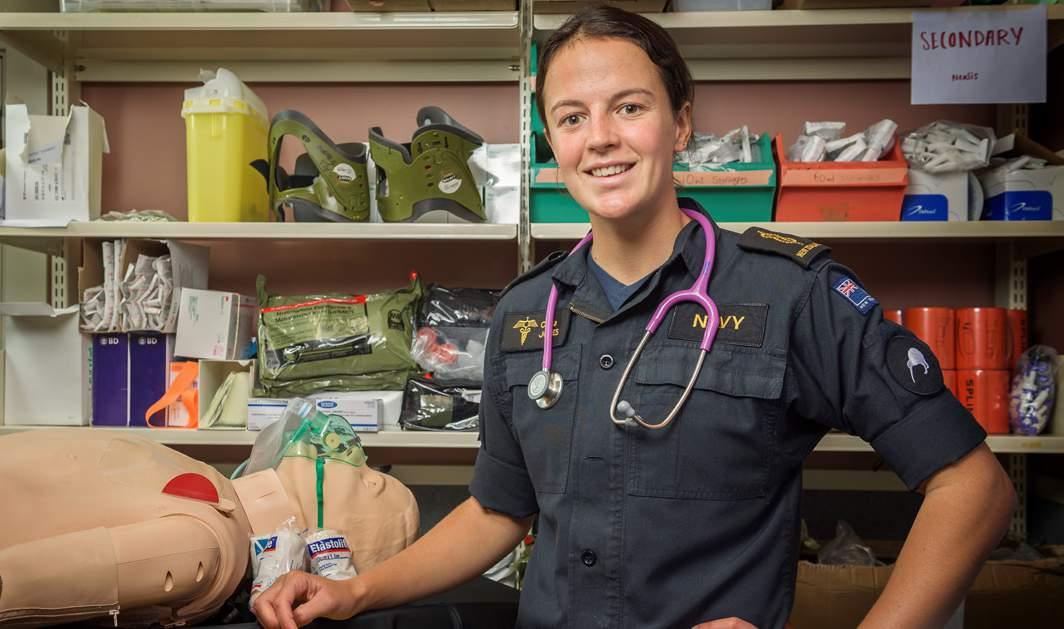
NEW ZEALAND NAVY
LEAVINGSCHOOL.CO.NZ | LEAVING SCHOOL ISSUE #26
34
■ OLIVIA STUDIED GEOGRAPHY,
AND OCEANOGRAPHY IN YEAR 13
ENGLISH, PHYSICS, SPORTS SCIENCE, CALCULUS
A BIG THING FOR ME IS THE COMRADESHIP, working TOGETHER WITH YOUR PEERS , AND JUST THE DETERMINATION to ACTUALLY WANT IT AND GO FOR IT.
OLIVIA JONES




EXPO! WIN A $300 TOURISM EXPERIENCE!
tell us what expo you will attend - enter here: bit.ly/expocomp ATTEND A TOURISM & HOSPITALITY
DISCOVER KICKSTART YOUR PART-TIME JOBSSTUDY OPTIONS - WORK EXPERIENCE - MENTORSHIPS - INSPIRATIONAL STORIESAND MORE! CAREERS
Simply
GET A TRADE IN THE ARMY SOLDIER SKILLS AND LEADERSHIP


CORPORAL (CPL) DALE GILBERTSON, from Third Workshops Company, Third Combat Service Support Battalion, is based at Burnham Military Camp. He joined the New Zealand Army in 2009 on a whim. While he initially joined as an Infantry (Combat Specialist) soldier, he decided to get a technical trade and changed to an Automotive Technician in 2015.
CPL Gilbertson says he enjoys being in the Army and each day is different.
“My work is highly variable. In any given month, I might be out at the range shooting, on a career development course, in the workshop, on a field exercise or more recently, instructing on courses.

“I am also passionate about fitness and the Army gives me time in work hours to pursue that,” he says. Automotive Technicians work on a range of repairs, and there is also a wide variety of equipment that needs to be maintained and repaired in camp. From one day to the next, they could be working on repairing a Light Armoured Vehicle (LAV), a Medium Heavy Operational Vehicle (MHOV), a motorbike or even an engine in a chainsaw.
CPL Gilbertson’s current role is the foreman in charge of the Quick Repair Bay.
“I am responsible for coordinating the repair of all faults on vehicles that would typically take under four hours to repair.”

An average day for an Automotive Technician would involve a large portion of “swinging spanners”, which a term widely used in the workshop that means working on vehicles or time on the tools.

“What makes my job enjoyable is more about the successful diagnosis of a fault, rather than the repair. Anyone with the right tools and repair manual can fix a fault, but it’s the diagnosis that sets a technician apart from a parts fitter.”
“I also thoroughly enjoy being able to teach and influence apprentices, which has been a big aspect of my job for the past few years,” CPL Gilbertson says. In Year 13 at Hagley Community College, he studied Law, Classical Studies, English, Electronics and Chemistry.
The Army has given him the opportunity to obtain NZQA qualifications, including a New Zealand Certificate in Heavy Automotive Engineering (Road Transport) (Levels 3 and 4), New Zealand Certificate in Business (Introduction to Team Leadership) (Level 3), Bridge Engineering Self-Supervision (BESS), Crane Use and
KEY FACTS


Load Slinging, Air Conditioning and Refrigerant Gas Handling, Use and Maintenance of Chainsaws, and Working at Heights.
CPL Gilbertson is also close to finishing a New Zealand Certificate in Automotive Electrical Engineering (Level 4), which would mean he is also able to work as an Automotive Electrician.
CPL Gilbertson says that being an Automotive Technician in the Army isn’t glamourous.
“It’s dirty, greasy, oily work. But it sets you up well for the future. If you want just a trade and to do that trade forever – then the Army isn’t the place for you. “If you want a trade and [to] maintain your fitness, soldier skills and develop as a leader – then the Army is for you.
“You meet and work with great people, you get to pursue sports, you can study, and occasionally, you get to go out around New Zealand and shoot stuff.”
NEW ZEALAND ARMY 36
LEAVINGSCHOOL.CO.NZ | LEAVING SCHOOL ISSUE #26
QUICK REPAIR BAY. HE HAS MANAGED TO ACHIEVE MANY NZQA
DURING HIS TIME IN THE NEW ZEALAND ARMY
QUALIFICATIONS
writer NZ DEFENCE FORCE photograph CORPORAL SEAN SPIVEY
WHAT MAKES MY JOB ENJOYABLE IS more ABOUT THE SUCCESSFUL DIAGNOSIS OF a fault , rather than the REPAIR
DALE GILBERTSON
DRAWN TO ENGINEERING SCHOLARSHIP HELPS STUDENT SOAR
writer SARA CARBERY photographer STAFF SERGEANT PATCH PALATCHIE

Thanks to a Royal New Zealand Air Force (RNZAF) scholarship, SCARLETT MacDONALD is in her first year of an engineering degree with no tuition costs to worry about. The scholarship also provides her with a living allowance and work experience during the university breaks –“a great opportunity to gain experience, meet people in the industry and gain hands-on learning that will help me with my studies”, she says.
While applying for the scholarship involved “a really intense and thorough” application process, including fitness tests and interviews over a number of days, Scarlett says it’s definitely worth giving it a go. “Just be confident in yourself and your abilities throughout the application process, and take every opportunity presented to you.” Having made up her mind to pursue a career in engineering, Scarlett looked into the different
universities offering engineering degrees and decided the University of Canterbury programme was the best fit for her.

“I like the city and the surrounding outdoors environment, and the university and the opportunities within the engineering department here are perfect for me and where I want to go with my degree, like the mechanical and aerospace pathways.
“I’m currently in first year so haven’t specialised yet, but I’m loving all my courses and the student life so far.”

With plans to major in Mechanical Engineering with a minor in Aerospace, Scarlett hopes to use her degree to change society, particularly by creating more sustainable ways of living.
She also hopes to inspire other young women to put themselves out there and into careers like engineering and the Defence Force.
Scarlett will go straight into the six-month commissioning course with the Air Force after she graduates, and then into the role of Junior Engineering Officer.
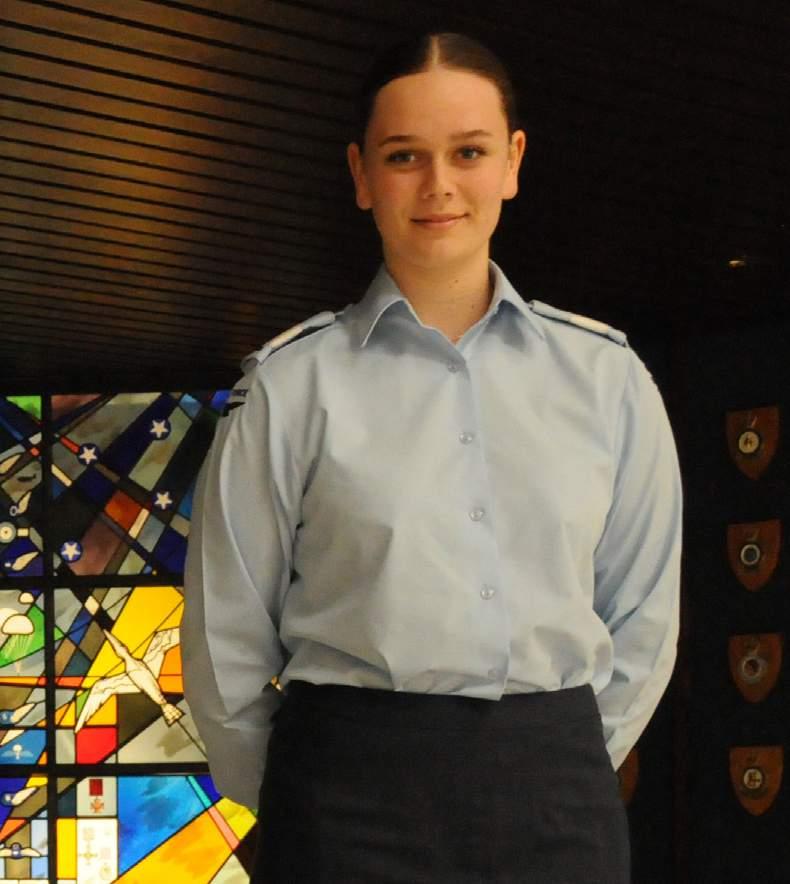

The return of service for her scholarship is four years, which means she has committed to working with the Air Force for at least four years after she finishes her degree.
In her final year at Napier Girls’ High School, Scarlett took Classics, Dance, Biology and English, having completed NCEA Level 3 Physics, Chemistry and Calculus the previous year.
“I’ve always enjoyed maths and physics so engineering seemed like a good idea,” she says, “and I also love the problem-solving and slightly creative aspect of the career.”
She says NCEA Calculus, Physics and Chemistry have been the most useful subjects for her tertiary studies, but English has also been helpful with writing reports.
In hindsight, Digital Technology would have been helpful. “I have to take a Computer Science paper, so experience with coding would have made it a lot easier.”


If you’re thinking of heading to uni, Scarlett’s advice is to find good friends who will support you and that you can study with.
“Get involved in lots; the university has so many amazing clubs to join that make it really easy to make new friends that have similar interests to you.”
KEY FACTS

LEAVING SCHOOL ISSUE #26 | LEAVINGSCHOOL.CO.NZ 37
SCHOLARSHIP.
I’VE ALWAYS ENJOYED MATHS AND PHYSICS so ENGINEERING SEEMED LIKE A GOOD IDEA AND I also love the PROBLEM-SOLVING AND SLIGHTLY CREATIVE ASPECT OF THE CAREER .
SCARLETT MacDONALD
ROYAL NEW ZEALAND AIR FORCE
SCHOOL UP ON SCHOLARSHIPS
Every year thousands of students qualify for scholarships and grants – not all are academic superstars by any means.
The scholarship value can range from $500 to tens of thousands of dollars, and it can help pay tuition fees, accommodation costs, or for textbooks or other expenses.
There are quite literally thousands of scholarships available over and above the New Zealand Scholarship awards awarded for exam success at Year 13.
They are available direct from universities, polytechnics, wānanga or from community organisations. They may be targeted at students from a geographical area or those who show interest in a particular line of study.
A large number of scholarships assist students from low-decile schools, Māori and Pacific students, refugees and disabled students to get an education. Scratch the surface and it’s not too hard to find a scholarship that you might qualify for. It’s worth applying. Someone has to get them, so why not you?
An example is Rotorua’s Holly Gardner who pocketed $7,500 in scholarship prizes in 2022 to help her complete a
sports diploma through Toi Ohomai Institute of Technology.
The climber’s sporting and volunteering achievements helped her land the scholarships.
SCRATCH




Taupō, Turangi, or Reporoa and intend to do either a degree in agriculture or veterinary science. Ask your school about local scholarships like this.
part way through his studies, by coming up with a proposal on reforms to New Zealand’s Fringe Benefit Taxation rules.
Scholarships can be quite obscure. For example, among a long list of scholarships at Wintec Te Pūkenga is the Betty Loughhead Soroptimist Scholarship, aimed at women who are studying to change occupations. Likewise, the Clark Fletcher Memorial Citrus Bursary pays up to $5,000 per year to a tertiary student who has a specific interest in the citrus industry.
Holly used some of the money to buy a much-needed laptop and is using the remainder to cover the entry fees, petrol, accommodation and licence fees associated with her climbing events. Some scholarships are available for students who grew up in, or now live in, specific geographic areas.
The Central Plateau Vet Society Inc. Undergraduate Scholarship offers $4,000 to students who attended secondary school in
Also, quiz your parents and relatives to see if their employers offer scholarships to family members. Many do. Downer, for example, offers whānau scholarships to the children and grandchildren of its employees.
Not all scholarships are for first-year tertiary students. If you missed out the first time around, you could try again. Victoria University student Peter Hazeldine secured a $5,000 Robin Oliver Tax Policy Scholarship,
Qualifying for scholarships doesn’t just make life easier financially. They also look good on your CV, especially early on in your career, and help you stand out from other applicants. Sometimes scholarships come with the opportunity for a paid internship with the organisation involved.

In turn, this boosts your earning power once you leave university. They can also involve mentorship, which is invaluable.
An example is the Fonterra Pacific Undergraduate Scholarship, which includes specialised mentorship from Massey University and Fonterra.
LEAVINGSCHOOL.CO.NZ | LEAVING SCHOOL ISSUE #26 SCHOLARSHIPS 38
image iSTOCK
writer DIANA CLEMENT //
Search the givME database https://generosity.org.nz/ giv-me for free at your school, uni or at a public library to see what you might qualify for
are: www.StudySpy.co.nz
the
New
scholarship database at www.universitiesnz.ac.nz/ scholarships and MoneyHub at www.moneyhub.co.nz/ students
Other sites to check out
,
Universities
Zealand
Helpful Tips! Helpful Tips!
THE SURFACE
AND it’s NOT TOO HARD TO FIND A SCHOLARSHIP THAT YOU MIGHT QUALIFY FOR . it’s WORTH APPLYING . SOMEONE HAS TO GET THEM , SO WHY NOT YOU?
ADDING
MORE THAN JUST VALUE
STRETCH OUT YOUR MONEY
Money is often tight for students. Whether you’re living on a student loan, allowance, earnings or savings, there are ways to make that money go further. It requires some planning, but the payback is worth it.

LEARN TO COOK
Many of those expensive foods your parents buy, like sourdough bread or pesto, can be cooked from scratch for very little. Learning to cook basic meals, such as macaroni cheese or sausages and mash, saves a lot of money.
BUY FOOD AND COOK TOGETHER AS A FLAT
Law student Alex Lay lives in a flat with five others. Last year, each flatmate spent only $30 to $40 on food each week, and they managed to eat pretty close to restaurant standards.
“We generally spent $120 to $150 at the supermarket, which covered our meals, breakfasts and lunch items, and $30 at a local farmers’ market. We ate five meals a week together, and otherwise ate leftovers. Our top tip would be to use a slow cooker. It saves a lot of time and makes cheap meat much more flavoursome. Only buying in-season fruit and veg and cooking seasonal recipes saves money too. Some of our favourite recipes come from Eleanor Ozich, Chelsea Winter, dish.co.nz, and the Two Raw Sisters.”
MAKE LUNCHES
Buying lunch at uni is going to cost you at least 10 bucks. A homemade lunch might just be a couple of dollars. Go back to basics and make sandwiches and fruit, and always carry a bottle of water. Try to make morning coffees at home, rather than going to a café.
WALK OR CYCLE, DON’T DRIVE
Every time you drive the car or take the bus it costs money. Can you plan ahead and walk or cycle? Look to reduce the number of times you need to drive or take the bus each week. Can you do your shopping on the way home from uni or work?
WRITE A BUDGET
Don’t zone out now. It’s quick and easy. Take your income, or portion of your loan for that week, and split it into essential categories, such as rent, basic food and transport.



Then divide whatever you have left under headings like entertainment and clothing. If you can, open multiple bank accounts for rent/utilities, such as electricity, and spending. Divvy up your money between them at the beginning of the week.
SPEND CASH
It might sound very last century, but it’s a trick that AUT nursing student Charlotte Miriam (@CharlotteMiriam on YouTube) uses. She follows the “cash stuffing” system and puts
cash in different envelopes each week for things like groceries and entertainment. Once each envelope is empty, she stops spending until the next week.
THRIFT, BUY ONLY WHAT YOU NEED
Buying in op shops, on Trade Me and Marketplace has gone mainstream, says third-year University of Auckland student Milo Brown, who thrifts all of his clothing.
“I like it because [it’s] more unique than purchasing in stores, which are trying to keep up with trends. You can purchase the same brands, such as Levis, Dickies and Carhartt, in op shops for a tenth of the cost you’d pay at Amazon.” Make sure you’re only buying what you actually need.

REFLECT ON WHAT YOU’VE SPENT EACH WEEK
Spend some time thinking on your own or discussing with flatmates about what you’ve spent that week. Break down your supermarket bill and look at where the money has gone. Learn from what you discover.
TIPS TO BOOST
LEAVING SCHOOL ISSUE #26 | LEAVINGSCHOOL.CO.NZ FINANCIAL TIPS 39
YOUR BUDGET
writer DIANA CLEMENT // image iSTOCK 39
PUTTING YOUR BEST CV FORWARD STAND OUT FROM THE CROWD
When you want to find any kind of job, you are going to need a CURRICULUM VITAE (CV). A CV is important because it gives an employer information to help them choose the best person for a job, and it helps you stand out from other applicants.

Your CV needs to include your contact details, a short summary of your skills, any work experience you’ve had and where you are up to with your education. It is also helpful to include a short profile summary.
CV STRUCTURE AND CONTENT


■ Put your name and contact details clearly at the top, and include a residential address.

■ Add a short profile – two to three sentences in length – explaining a bit about yourself and what you are aiming for in terms of study or career aspirations.
■ List your skills as bullet points and explain where you have used each skill. Include things like team work, responsibility, time management, money handling, customer service, written and oral communication, and computer skills. These are what employers are looking for in younger employees. You can use experience from being in clubs and teams, as well as any paid or unpaid work you have done.
Don’t forget to include the skills that are mentioned in the job advertisement.
■ List any previous jobs you have had, along with the name of who you worked for and what you did.

■ Include an Education section. Provide the year you are in and the subjects you are studying.
■ List your outside interests.
■ List the names and contact details of people who will be referees for you. You need people who know you and have worked with you in some way.
A WORD ABOUT LAYOUT

■ Use a computer to format your CV clearly, leaving plenty of white space so it doesn’t look cluttered.
■ Choose a font that is easy to read. Use headings for each section and list your skills with bullet points.
■ Make sure all headings line up and the line spacing is the same throughout.
■ When you have finished, ask someone else to proofread it for you before you send it off.
FREQUENTLY ASKED QUESTIONS

Is it a good idea to get someone else to write my CV for me?
No. It is easy to tell when someone else has written a CV because the language is generally more formal and sometimes a bit too sophisticated.
Sure you can get someone to help you if you are not sure how to say something, but putting your CV together yourself will mean that you know what is in it and you will answer interview questions using the same style and language.
Should I include a photo?
As a rule, I generally advise not to. We all like to think that our picture might get us a job, but I think it can introduce the possibility of bias, for whatever reason.
Should I use colour or make it look more attractive in some way?
The content of your CV is the most important thing. Using a lot of colour and design features can be distracting.
LEAVINGSCHOOL.CO.NZ | LEAVING SCHOOL ISSUE #26
visit www.careerclinic.co.nz CV PREPARATION 40
Janet Tuck is a Career Specialist and Director of Career Clinic For more information,
writer JANET TUCK graphic from i STOCK
SEVEN SKILLS EMPLOYERS WANT PRESENT
YOURSELF IN YOUR BEST LIGHT

SELF-MANAGEMENT
Getting to work on time and dressed appropriately is just one part of selfmanagement. Not getting angry at others when you’re frustrated and managing stress are top skills that will get you a job.
WILLINGNESS TO LEARN
Learning doesn’t stop once you leave school. Employers want to know that you can learn new technologies or new skills. Being keen to learn is a good bet for getting a job.
THINKING SKILLS
Employers rate thinking skills the highest when looking at your CV. Do you like to solve problems? Can you make a good decision? Do you think before you act?
RESILIENCE
Have you got grit? When something knocks you down, do you get back up again? This is resilience. Employers need you to have this skill to cope when things go wrong at work.

SHOW OFF YOUR EMPLOYABILITY SKILLS ON YOUR CV
Include employability skills in the skills list, work history, interests, and achievement sections of your CV to wow employers.
■ RESILIENCE
Have you ever wondered, ’What is that magical power some people have that gets them a job?’ The answer isn’t magical – the key is that these job seekers demonstrate they have the employability skills employers are looking for.
The world of work is rapidly changing. While new jobs will be created in the future, others will disappear or become automated.
Employers seek workers who have the skills, confidence and the ability to adapt to new technologies and other market opportunities. The good news is that you will have many of these skills already.
These skills can be learned in daily life by doing work experience or volunteer work, playing sport, helping your family, taking up a hobby or taking part in school and community activities.
WHAT ARE EMPLOYABILITY SKILLS?
Employability skills, or soft skills, are the personal qualities and attitudes you have that make you ready for work, such as getting to work on time or following instructions. Employers tell us they need young people to be work-ready – if you

have the right attitude, the technical skills can be taught.
SEVEN EMPLOYABILITY SKILLS EMPLOYERS WANT
Employability skills include: POSITIVE ATTITUDE
A positive attitude is not just about being “bubbly”. It means showing that you’ll happily do the work asked of you, and you’ll stay upbeat when the work gets hard.
COMMUNICATION

Good communication skills are when you follow instructions well and ask questions when you’re confused. Being able to explain things clearly is a bonus for employers.
TEAMWORK
Playing or working well with others is not just a bonus on the rugby ground or during that science project, it’s something employers value.
Bullet point up to five employability skills on your CV, with an example of how you got them.

■ WORK HISTORY
List volunteer work or paid work experience in your work history in a way that showcases your skills.
■ INTERESTS AND ACHIEVEMENTS SECTIONS

What you do in your spare time is a powerful indicator to employers of your range of skills. Remember, if you can show these skills on your CV you are on the right track to getting an employer interested in hiring you.
For more information on employability skills and creating your CV, visit www.careers.govt.nz
LEAVING SCHOOL ISSUE #26 | LEAVINGSCHOOL.CO.NZ
written by careers.govt.nz
41 EMPLOYABILITY SKILLS
There are so many things to consider when looking at which path to take after school. Have a look at the following jobs and learn about the relevant factors for each position.
Here you’ll find profiles of 24 jobs from across a variety of sectors. Each profile includes detailed job descriptors and some insightful statistics.

A CLOSER LOOK AT SOME SOLID CAREER OPTIONS JOBS IN FOCUS DEFENCE
Also known as: General list officer.
Army officers train soldiers and manage field exercises. They also lead soldiers in combat, security operations, peacekeeping missions and disaster relief.
PERSONAL CARE ASSISTANT
To be eligible for Army officer basic training, it is necessary to be at least 17.5 years old to apply, have no criminal convictions, have a minimum of NCEA Level 2 with 12 credits in English, hold a current, clean driver licence and be medically and physically fit. Also, it is a requirement to be a New Zealand citizen or New Zealand residence-class visa holder. Further, some trades have different age requirements, and may require NCEA credits in specific subjects or a degree.
New officer cadets are posted to the training facility at Waiouru to complete the 12-month New Zealand Commissioning Course, and graduate as an officer. Once graduated, Army officers undergo further training in a specialist field.
Chances of getting a job as an Army officer are average as there is high competition for limited positions.
Statistics: Job prospects: Average.
Length of study: 1–2 years.






Pay scale: Army officer cadets usually earn $46,000–$58,000 per year. Lieutenants usually earn $70,000–$92,000.
Captains usually earn $85,000–$111,000. Majors usually earn $96,000–$128,000.
Navy officers train sailors and lead them in combat, on border patrols, peacekeeping missions and disaster relief. They also manage field exercises.
To be eligible for Navy officer basic training, it is necessary to be at least 17.5 years old to apply, have no criminal convictions, have a minimum of NCEA Level 2 with 12 credits in English, hold a current, clean driver licence and be medically and physically fit. Also, it is a requirement to be a New Zealand citizen or New Zealand residence-class visa holder. Further, some trades have different age requirements, and may require NCEA credits in specific subjects or a degree.
New officer cadets (midshipmen) are posted to Devonport Naval Base to complete 24 weeks of Junior Officer Common Training.
Chances of getting a job as a Navy officer are average as the Navy recruits only a small number of officers each year, and competition for positions is high.
Statistics: Job prospects: Average.
Length of study: Up to 1 year.
Pay scale: Officer cadets usually earn $46,000–$58,000 per year. Ensigns usually earn $59,000–$77,000. Sub-lieutenants usually earn $72,000–$94,000 per year. Lieutenants usually earn $90,000–$121,000 per year. Lieutenant Commanders usually earn $103,000–$139,000 per year.
Air Force officers plan and supervise flying missions, as well as the repair and maintenance of aircraft and ground equipment. They also have duties related to their area of specialisation. Air Force officers help in search and rescue operations, and disaster relief efforts in New Zealand and overseas.
To be eligible for Air Force officer basic training, it is necessary to be at least 17.5 years old to apply, have no criminal convictions, have a minimum of NCEA Level 2 with 12 credits in English, hold a current, clean driver licence and be medically and physically fit. Also, it is requirement to be a New Zealand citizen or New Zealand residence-class visa holder. Further, some trades have different age requirements, and may require NCEA credits in specific subjects or a degree.
New air force officer cadets are posted to RNZAF Woodbourne for 26 weeks to complete their initial Officer Training Course. Chances of getting a job as an Air Force officer are average as low turnover of staff means the Air Force recruits for only a small number of positions each year.
Statistics: Job prospects: Average.
Length of study: Up to 1 year.
Pay scale: Air Force officer cadets usually earn $46,000 per year. Pilot officers usually earn $59,000–$77,000. Flying officers usually earn $75,000–$88,000 per year. Flight Lieutenants usually earn $91,000–$114,000 per year. Squadron leaders usually earn $103,000–$130,000 per year.
New Zealand Army soldiers defend New Zealand, forming highly skilled teams to work together in combat and security operations, on peacekeeping missions, in humanitarian assistance and disaster relief. Army soldiers train in a specific role or trade. Examples include communication systems technician, gunner, logistics specialist or field engineer. Each role has its own specific tasks and duties.
To be eligible for Army soldier basic training, it is necessary to be at least 17 years old to apply, have no criminal convictions, be medically and physically fit, and have completed at least three years of secondary school education. It is also necessary to be a New Zealand citizen or a New Zealand residence-class visa holder.
New Zealand Army recruits do 16 weeks of basic training at Waiouru Army Camp. After this, recruits do corps training and learn the basics of a specific Army trade.
Chances of getting a job as an Army soldier are good, as the Army recruits up to 500 soldiers per year. Competition for some specialist roles can be high.
Statistics: Job prospects: Good.
Length of study: Up to one year.
Pay scale: Army soldier recruits in training usually earn $47,000 per year. Privates usually earn $51,000–$59,000.
Lance Corporals and Corporals usually earn $55,500–$77,000. Sergeants and Staff Sergeants usually earn $67,000–$99,000.
Warrant officers usually earn $85,000–$112,000.
Please note: The occupations listed have been colour coded to their predominant service industry sector colours using the Vocational Pathway colour chart
LEAVINGSCHOOL.CO.NZ | LEAVING SCHOOL ISSUE #26 JOBS IN FOCUS 42
ARMY OFFICER Āpiha ope tauā ARMY OFFICER Āpiha ope tauā The job data was sourced from CAREERS NEW ZEALAND, visit www.careers.govt.nz
NAVY
Āpiha tauā moana AIR
Āpiha tauārangi
OFFICER
FORCE OFFICER
JOB PROSPECTS POOR AVERAGE GOOD INCOME LOW MEDIUM HIGH JOB PROSPECTS POOR AVERAGE GOOD JOB PROSPECTS POOR AVERAGE GOOD INCOME LOW MEDIUM HIGH INCOME LOW MEDIUM HIGH INCOME LOW MEDIUM HIGH LENGTH OF STUDY LENGTH OF STUDY JOB PROSPECTS POOR AVERAGE GOOD LENGTH OF STUDY LENGTH OF STUDY ARMY SOLDIER Hōia ope tauā
SCIENCE
PERSONAL CARE ASSISTANT
Also known as: Climatologist; weather forecaster. Meteorologists monitor and study weather systems and atmospheric patterns, predict weather conditions and climate trends using computer forecasting models, and prepare weather maps and forecasts. Further, meteorologists may design experiments and equipment to measure air quality and composition, ozone, greenhouse gases and pollution.
In order to become a meteorologist, it is necessary to complete a trainee meteorologist programme and gain a Master of Meteorology.
To be accepted into the master’s programme, you need to have a Bachelor of Science majoring in Maths or Physics, but other majors may be considered. MetService and Victoria University of Wellington oversee the traineeship programme.
NCEA subjects that are useful in this role include English, Physics, Chemistry, Maths and Geography. Job prospects for meteorologists are average, primarily due to steady numbers of people in this role.
Statistics: Job prospects: Average.
Length of study: 4–6 years.





Pay scale: New meteorologists usually earn $45,000 –$60,000 per year. Meteorologists with four to seven years’ experience usually earn $60,000 –$90,000. Senior meteorologists with six to 10 years’ experience usually earn $90,000 –$120,000.
Also known as: Fermentation scientist; fermentation technologist; molecular biologist; molecular geneticist; process engineer (biotechnology). Biotechnologists study micro-organisms and the genetic make-up of plants, animals, humans and micro-organisms. They develop and test methods of making new animal or plant products, such as medicines and pest-resistant crops.
To become a biotechnologist, it is necessary to have a Bachelor of Science, Bachelor of Engineering or Bachelor of Technology with a major in one of the following: Biotechnology or Plant Biotechnology, Biochemical Engineering, Biochemistry, Food Technology, Genetics, Industrial Bioscience or Molecular Biosciences. Many employers do prefer to hire biotechnologists with a master’s or PhD in biotechnology or a relevant field.
NCEA subjects that are useful to have studied include Calculus, Biology, Maths, Chemistry and Physics.
Chances of getting a job as a biotechnologist are good due to increasing demand for their services.
Statistics: Job prospects: Good.
Length of study: 3–5 years.
Pay scale: Biotechnologists with bachelor’s degrees usually earn $42,000 –$55,000 per year. Biotechnologists with master’s degrees usually earn $55,000 –$75,000. Senior biotechnologists with PhDs usually earn $76,000 –$94,000. With more responsibility and experience, biotechnologists can earn $130,000 per year.
Also known as: Aquatic biologist; fisheries scientist; freshwater biologist; marine ecologist.

Marine biologists observe and research marine plants and animals in their natural environment, finding out about population growth and life expectancy. They also identify and classify different types of marine life. Studying the impact of pollution and planning experiments are also elements of the role.
To become a marine biologist, it is usually expected that you will have a master’s or PhD in Marine Biology, Marine Ecology, Marine Conservation, Zoology or a related science.
NCEA subjects that are useful to have studied include Biology, Chemistry, Physics, English, Statistics and Calculus.
The demand for marine biologists is growing but competition for job vacancies is high. The occupation remains relatively small, and there is low staff turnover while the number of graduates exceeds the number of positions available.
Statistics: Job prospects: Average.
Length of study: 5–9 years.
Pay scale: Marine biologists at Crown research agencies usually earn $64,000 –$100,000 per year. Marine biologists at independent science organisations usually earn $58,000 –$125,000. Marine biologists at universities usually earn $55,000 –$190,000.
Also known as: DNA analyst; firearms examiner; forensic toxicologist; illicit drug analyst.

Forensic scientists apply scientific knowledge and skills to investigating crimes and helping the police find or eliminate crime suspects. They visit crime scenes to find evidence, map the crime scene, analyse physical evidence, identify drugs and write reports on the results. They may also give evidence in court and train police staff in collecting evidence.
To become a forensic scientist, you need to have a postgraduate qualification in forensic science.
NCEA subjects that are useful to have studied include Maths, Biology, Chemistry and English.
Chances of getting a job as a forensic scientist are poor as there is high competition for positions and low turnover.
Statistics: Job prospects: Poor.
Length of study: 4 –5 years.
Pay scale: Forensic scientists working as senior forensic technicians usually earn $54,000 –$81,000 per year. Senior forensic scientists usually earn $79,000 –$118,500. Forensic scientists leading research projects usually earn $95,000 –$150,800.
Medical physicists help plan radiation treatment for patients, and check and monitor radiation equipment. They may also develop new treatment techniques.
To become a medical physicist, it is necessary to have a relevant undergraduate degree, such as a Bachelor of Science majoring in Physics or in Physics (Medical Physics and Imaging Technology). Specialist training and work experience is then undertaken. This includes a Master of Science in Medical Physics, alongside a five-year clinical Training, Education and Accreditation Programme in one of three areas of specialisation: radiation oncology medical physics, diagnostic imaging medical physics or nuclear medicine physics. Medical physicists are accredited with the Australasian College of Physical Scientists and Engineers in Medicine.
NCEA subjects that are useful to have studied include Biology, Construction and Mechanical Technologies, Chemistry, Digital Technologies, Maths and Physics.
Chances of getting a job as a medical physicist are good as there is a shortage of workers. There are not enough people currently training to be medical physicists to meet demand for their services.
Statistics: Job prospects: Good. Length of study: 8 years
Pay scale: Working for Te Whatu Ora Health NZ, medical physicists in training usually earn $65,000–$85,000 per year. Mid-level medical physicists usually earn $103,000–$118,000. Senior medical physicists with management responsibilities usually earn $122,000–$161,000.
43 JOBS IN FOCUS LEAVING SCHOOL ISSUE #26 | LEAVINGSCHOOL.CO.NZ
JOB PROSPECTS POOR AVERAGE GOOD
LENGTH OF STUDY
huarere
METEOROLOGIST Matapae
MEDICAL PHYSICIST Kaiahupūngao whakaora HORSE TRAINER Kaiwhakapakari hōiho BIOTECHNOLOGIST Ringa hangarau koiora MARINE BIOLOGIST Kaimātai koiora moana JOB PROSPECTS POOR AVERAGE GOOD JOB PROSPECTS POOR AVERAGE GOOD FORENSIC SCIENTIST Kaipūtaiao taihara INCOME LOW MEDIUM HIGH INCOME LOW MEDIUM HIGH INCOME LOW MEDIUM HIGH INCOME LOW MEDIUM HIGH INCOME LOW MEDIUM HIGH LENGTH OF STUDY LENGTH OF STUDY JOB PROSPECTS POOR AVERAGE GOOD LENGTH OF STUDY JOB PROSPECTS POOR AVERAGE GOOD LENGTH OF STUDY
FINANCE AND PROPERTY SERVICES
Also known as: Actuarial consultant; actuarial analyst.
Actuaries predict and assess the financial risks and impacts of future events, working in areas such as insurance, superannuation and investment. They also collect and analyse statistics about past financial events, as well as working to analyse and solve business problems using mathematical and statistical modelling techniques.
While there are no specific requirements to become a trainee actuary, it is recommended to have a bachelor’s degree in mathematics or statistics.
PERSONAL
Victoria University of Wellington is the only university in New Zealand that offers a Bachelor of Science or a Bachelor of Commerce in Actuarial Science. To be a qualified actuary, it is necessary to pass a number of exams set by an overseas actuary institute, and this study is done while working fulltime. Qualified actuaries are registered with the New Zealand Society of Actuaries.
NCEA subjects that are useful in this role include English, Economics, Accounting and Maths.
Job prospects for actuaries are good as there is growing demand for their services. The number of qualified actuaries in New Zealand is small, while the number of roles available is increasing.
Statistics: Job prospects: Good. Length of study: 5–8 years.
Pay scale: Trainee actuaries usually earn $45,000 –$100,000 per year. Fully qualified actuaries with five to eight years’ experience usually earn $100,000 –$150,000.
Also known as: Loss adjuster; insurance investigator.
Insurance loss adjusters investigate and calculate insurance claims. They inspect damage to property, vehicles or equipment, determine the cause of the damage and make assessments as to what is covered under the insurance policy.
While there are no specific entry requirements to work as an insurance loss adjuster, qualifications in science, construction or business may be useful. Many insurance loss adjusters complete training to become chartered loss adjusters. To become a chartered loss adjuster, it is necessary to be employed as an insurance loss adjuster and to complete a Diploma of Loss Adjusting from the Australian and New Zealand Institute of Insurance and Finance. It is also necessary to complete qualifications or meet standards set by the Australasian Institute of Chartered Loss Adjusters.
NCEA subjects that are useful to have studied include English, Maths and Business Studies.
Chances of getting a job as an insurance loss adjuster are average for those wishing to enter the role but are good for those with experience.
Statistics: Job prospects: Average.
Length of study: 0–3 years.
Pay scale: Insurance loss adjusters usually earn $56,000 –$88,000 per year. Senior loss adjusters usually earn $80,000 –$120,000. Specialist loss adjusters usually earn $82,000 –$143,000.
Also known as: Real estate valuer; personal property/chattels valuer; appraiser; land economist. Valuers can work across a number of industries and may specialise in a particular area. Valuers inspect and record details of properties or items (such as jewellery), work out the value of that property or item and advise clients on values for sale or insurance. They may also research market information or even be called to give evidence in court.
To become a real estate valuer, it is necessary to have a certain degree (these vary depending on whether you will be an urban or rural valuer) and be registered with the Valuers Registration Board. To become a personal property valuer, it is possible to do on-the-job training with an employer or valuation company and complete a valuation course offered by an international appraisers’ organisation.
NCEA subjects that are useful in this role include Art History, Business Studies, Painting, Sculpture, Photography and Printmaking combined, English, Economics and Maths.
Job prospects for valuers are good for those wanting to specialise in real estate but average for valuers of personal property.
Statistics: Job prospects: Good.
Length of study: 1–4 years.





Pay scale: Valuers with up to three years’ experience usually earn $56,000 –$87,000 per year. Valuers with over three years’ experience usually earn $87,000 –$138,000.
Also known as: Body corporate manager; commercial property manager; residential property manager; asset manager; portfolio manager; property adviser. Property managers look after the daily running of residential or commercial properties. Tasks involved in this role include advertising and showing rental homes or commercial properties, negotiating tenancy agreements and leases, reviewing property maintenance, security and tenancy contracts, and collecting rents and bonds.
FACILITIES MANAGER
papa whenua JOB PROSPECTS
There are no specific entry requirements to work as a property manager and often skills are obtained on-the-job. For those wanting to do residential property management, a relevant qualification is the New Zealand Certificate in Residential Property Management (Level 4). For commercial property management, employers often prefer to hire graduates with a degree in property management, finance or marketing.
NCEA subjects that are useful in this role include Accounting, Business Studies, Economics and Maths. Job prospects for property managers are good as there is increasing demand for their services.
Statistics: Job prospects: Good.
Length of study: Varies.
Pay scale: Residential property managers with up to three years’ experience usually earn $61,000 –$82,000 per year. Residential property managers with over three years’ experience usually earn $82,000 –$102,000. Property managers in construction usually earn $71,000 –$122,000.
Also known as: Operations manager; procurement manager; building manager; facilities coordinator; property officer; asset manager.
Kaiwhakahaere whakaurunga
Facilities managers co-ordinate the strategic and operational management of buildings and facilities to ensure they are safe, sustainable, productive and fit-for-purpose. Responsibilities of facilities managers include overseeing building maintenance, managing health and safety risks, project managing construction or other types of work (such as landscaping or engineering), and using technology to manage and monitor how buildings operate.
There are no specific entry requirements to work as a facilities manager and often skills are obtained on-the-job. There are relevant trade and tertiary qualifications that may assist with entering this role, such as qualifications in facilities management, engineering, building science or project management.
NCEA subjects that are useful in this role include Construction and Mechanical Technologies, Business Studies, English and Maths.
Job prospects for facilities managers are good as there is increasing demand for new workers.
Statistics: Job prospects: Good.
Length of study: Varies

PROPERTY MANAGER Kaiwhakahaere POOR AVERAGE GOOD
LENGTH OF STUDY LENGTH OF STUDY LENGTH LENGTH OF STUDY INCOME LOW MEDIUM HIGH INCOME LOW MEDIUM HIGH INCOME LOW MEDIUM HIGH
POOR AVERAGE GOOD LENGTH OF STUDY
VARIES

JOBS IN FOCUS 44 LEAVINGSCHOOL.CO.NZ | LEAVING SCHOOL ISSUE #26
Kaitiaki pī
Kaiwhakatau wāriu
LOSS
Kaiwhakatika makeretanga rīanga
BEEKEEPER
PERSONAL CARE ASSISTANT VALUER
PERSONAL CARE ASSISTANT INSURANCE
ADJUSTER
CARE
Kaitauwhiro pūtea
Kaiwhakahaere māpu kau
ASSISTANT ACTUARY
DAIRY HERD MANAGER
JOB PROSPECTS POOR AVERAGE GOOD
LENGTH OF STUDY
INCOME LOW MEDIUM HIGH INCOME LOW MEDIUM HIGH JOB PROSPECTS POOR AVERAGE GOOD
JOB PROSPECTS POOR AVERAGE GOOD VARIES
Pay scale: Facilities managers with one to two years’ experience usually earn $55,000 –$70,000 per year. Facilities managers with three to four years’ experience usually earn $70,000 –$100,000. Senior facilities managers usually earn $100,000 –$150,000. JOB PROSPECTS
CONSTRUCTION AND INFRASTRUCTURE
Also known as: Bulldozer driver; civil plant operator; digger operator; excavating machine operator; digger driver; backhoe operator; grader operator; earthmoving operator.
Earthmoving machine operators use digging machines (such as bulldozers, excavators and graders) to excavate and level earth, rock and rubble.
To become an earthmoving machine operator, it is necessary to at least have a full driver licence. Employers usually prefer candidates to have a class 2 licence as well as rollers, tracks and wheels endorsements. Further, earthmoving machine operators will need to pass pre-employment medical and drug tests, and a police check.
It is possible to gain the following qualifications through training programmes: a New Zealand Certificate in Infrastructure Works (Levels 2 and 3), a New Zealand Certificate in Civil or Infrastructure Works (Levels 4 or 5) and a New Zealand Certificate in Civil Plant Operation (Level 3). For those with extensive experience, it is possible to apply for Civil Trade Certification.
NCEA subjects that are useful in this role include Construction and Mechanical Technologies, English and Maths.
Job prospects for earthmoving machine operators are good as there are many construction and roading projects that are underway and require their services.
Statistics: Job prospects: Good. Length of study: 1 year.
Pay scale: New earthmoving machine operators usually earn minimum wage up to $35 per hour. Experienced earthmoving machine operators may earn more. Leading hands usually earn $40,000–$80,000.
Also known as: Building site manager; construction site manager; construction site supervisor; site manager; construction project manager.
Building and construction managers plan building programmes, estimate prices and put in tenders for jobs, estimate the number of workers, types of machinery and material required, and consult with clients, building professionals and councils. Most building and construction managers work for commercial building companies.
To become a building and construction manager, it is necessary to have a lot of experience in the building and construction industry. People who are employed in this role usually have qualifications in building, civil engineering, construction management or quantity surveying.
NCEA subjects that are useful to have studied include Design and Visual Communication, Construction and Mechanical Technologies, Maths and English.
Chances of getting a job as a building and construction manager are good due to demand for their services and a shortage of workers.
Statistics: Job prospects: Good.
Length of study: 2–4 years.






Pay scale: Construction project managers usually earn $92,000–$204,000 per year. Construction managers usually earn $120,000–$224,000.
Also known as: Fabrication welder; fitter welder.
Welders make, join and repair metal parts using welding techniques. These metal parts are used on machinery and equipment. They study plans and drawings, and make jigs (out of wood or metal) that hold parts in place for welding. While there are no specific entry requirements to become a welder, employers prefer candidates that have or are working toward welding qualifications. To become a qualified welder, it is necessary to complete an apprenticeship and gain a New Zealand Certificate in Engineering – Fabrication (Level 4). Within this, it is necessary to specialise in light fabrication, heavy fabrication or steel construction.
NCEA subjects that are useful to have studied include Maths, Physics, English and Technology.
Chances of getting a job as a welder are good because the workforce is nearing retirement age and there are not enough people training to meet demand.
Statistics: Job prospects: Good.
Length of study: 1–3 years.
Pay scale: Apprentice welders usually earn minimum wage. Unqualified welders usually earn $26–$31 per hour. Qualified welders usually earn $30–$40 per hour. Welders who supervise others usually earn $40–$45 per hour.
Also known as: Concrete finisher; concreter; concrete placer.
Concrete workers make, pour, spread and finish, cut and reinforce concrete for construction projects, such as buildings. Tasks that concrete workers are responsible for include weighing and mixing concrete materials (gravel, sand, cement and water), sampling and testing the mix, and preparing the boxing and laying reinforcing. Concrete workers may also drive heavy vehicles, such as concrete trucks. There are no specific entry requirements to work as a concrete worker but once employed, it is useful to complete an apprenticeship and gain a New Zealand Certificate in Precast Concrete, Concrete Product Manufacture or Concrete Construction.
NCEA subjects that are useful to have studied include Construction and Mechanical Technologies, Maths, PE and English.
Chances of getting a job as a concrete worker are good as there is a shortage of workers and there is strong demand for their services.
Statistics: Job prospects: Good.
Length of study: Varies.
Pay scale: Apprentice concrete workers usually earn the apprentice training rate.
Unqualified concrete workers usually earn minimum wage.
Qualified concrete workers usually earn up to $30 per hour
Also known as: Traffic controller; civil labourer; roading labourer.
Roading construction workers make surfaces such as roads, airport runways and driveways, and control traffic around road construction sites. They may dig up road surfaces and prepare them for resealing, operate heavy machinery (such as graders and rollers) and maintain machinery and equipment.
To become a roading construction worker, it is necessary to at least have a restricted driver licence and pass pre-employment medical and drug tests, and a police check. Employers prefer candidates who have a heavy vehicle licence and rollers, tracks or wheels endorsements. Most roading construction workers learn skills on-the-job.
NCEA subjects that are useful to have studied include English, Maths, Science, Construction and Mechanical Technologies and PE.
Chances of getting a job as a roading construction worker are good due to high turnover and many large roading and transport plans occurring as well as being planned for the future.
Statistics: Job prospects: Good.
Length of study: Varies .
Pay scale: Roading construction workers usually earn minimum wage up to $24 per hour. Roading leading hands usually earn $45,000–$85,000.

45 JOBS IN FOCUS LEAVING SCHOOL ISSUE #26 | LEAVINGSCHOOL.CO.NZ
HERD MANAGER Kaiwhakahaere māpu kau EARTHMOVING MACHINE OPERATOR Kaiwhakamahi wakapana oneone WELDER Kaihonohono maitai
HERD MANAGER Kaiwhakahaere māpu kau BUILDING AND CONSTRUCTION MANAGER Kaiwhakahaere hanga whare
HERD MANAGER Kaiwhakahaere māpu kau
CONSTRUCTION WORKER Kaimahi hanga rori
HERD MANAGER Kaiwhakahaere māpu kau CONCRETE WORKER Kaimahi
DAIRY
DAIRY
DAIRY
ROADING
DAIRY
raima
LENGTH OF STUDY
JOB PROSPECTS POOR AVERAGE GOOD JOB PROSPECTS POOR AVERAGE GOOD JOB PROSPECTS POOR AVERAGE GOOD JOB PROSPECTS POOR AVERAGE GOOD VARIES LENGTH OF STUDY VARIES
JOB PROSPECTS POOR AVERAGE GOOD LENGTH OF STUDY INCOME LOW MEDIUM HIGH INCOME LOW MEDIUM HIGH INCOME LOW MEDIUM HIGH INCOME LOW MEDIUM HIGH LENGTH OF STUDY LENGTH OF STUDY LENGTH OF STUDY INCOME LOW MEDIUM HIGH
HOSPITALITY AND TOURISM
Also known as: Sous chef; head/executive chef; commis chef; chef de partie.
PERSONAL CARE ASSISTANT
Chefs prepare and cook food. This could be across a variety of settings, such as restaurants, rest homes, cafés and for catering companies. They also design, plan and price menus, as well as train and supervise staff. Other responsibilities include ordering food supplies and cooking equipment.
While there are no specific requirements to become a chef, a cookery qualification may be useful. There is an on-the-job apprenticeship, which includes the New Zealand Certificate in Hospitality (Cookery) (Level 4). Another qualification is the New Zealand Certificate in Cookery (Level 3).
You can also train to be a chef with the New Zealand Army or Royal New Zealand Navy.
NCEA subjects that are useful in this role include Home Economics (Food and Nutrition).
Job prospects for chefs are good as there is a shortage of skilled workers.
Statistics: Job prospects: Good.
Length of study: 1–3 years.





Pay scale: Apprentice and commis chefs usually earn minimum wage. Chefs de partie usually earn $25 per hour. Sous chefs usually earn $27 per hour. Head/executive chefs usually earn $29 –$38 per hour.
Also known as: Waiter; waitress; food and beverage attendant; front of house staff.
PERSONAL CARE ASSISTANT WAITSTAFF
Waitstaff serve food and drinks across a variety of settings, such as restaurants, hotels and other eating places. They may set and prepare tables for customers, hand out menus and wine lists, and answer questions about the menu. Further responsibilities include clearing tables, cleaning the venue, polishing cutlery and glasses, and restocking food and drinks.
There are no specific entry requirements to work as waitstaff and skills are usually learned on-the-job. Waitstaff can study toward a New Zealand Certificate in Hospitality (Food and Beverage) (Level 3).
NCEA subjects that are useful in this role include Home Economics (Food and Nutrition) and English. Chances of getting a job as waitstaff are good due to low unemployment and an increase in job vacancies. There is a shortage of people available to do this role.
Statistics: Job prospects: Good. Length of study: Varies. Pay scale: Waitstaff usually earn minimum wage up to $24 per hour.
Also known as: Conference manager; event co-ordinator; wedding planner.
Event managers develop ideas for events, work closely with clients, contractors and staff, and plan for the event. This can include working out and managing the event budget, booking the venue and any equipment needed, promote and market the event, and oversee the running of the event.
To become an event manager, it is necessary to have experience in running events or a relevant qualification. There are several options for training and studying in this area. These include on-the-job training and study towards the New Zealand Certificate in Tourism Conventions and Incentives (Level 4) or the New Zealand Diploma in Tourism Conventions and Incentives (Level 5). Other options include a degree in marketing, tourism and hospitality, communications or applied management or a Graduate Diploma in Event Management (Level 7).
NCEA subjects that are useful in this role include Home Economics (Food and Nutrition), Accounting, Business Studies, Economics, English and Maths.
Chances of getting a job as an event manager are good as there is demand for their services.
Statistics: Job prospects: Good. Length of study: Varies Pay scale: New event managers usually earn minimum wage up to $50,000 per year. Event managers with over three years’ experience usually earn $50,000–$75,000.
Also known as: Restaurant manager; caterer; food and beverage manager; duty manager; fast food manager. Café and restaurant managers are in charge of running cafés, restaurants and fast-food outlets. They may also run catering businesses. Café managers hire and supervise staff, ensure licensing regulations are followed and make sure that customer service is at a high level. Other tasks include taking customer bookings, organising supply purchases, keeping records, planning budgets and rosters, and marketing and promotion of the venue.
There are no specific entry requirements to work as a café manager but employers usually prefer candidates with experience working in hospitality, and who have business management skills or experience. A useful qualification is the New Zealand Diploma in Hospitality Management (Level 5). If the establishment sells alcohol, the manager must be at least 20 years old and hold a Manager’s Certificate and a Licence Controller Qualification. NCEA subjects that are useful in this role include Home Economics (Food and Nutrition) and Accounting.
Job prospects for café managers are good due to a shortage of workers.
Statistics: Job prospects: Good.
Length of study: Varies.
Pay scale: Duty managers and assistant managers usually earn minimum wage up to $24 per hour. Café managers usually earn $23–$24 per hour. Restaurant managers usually earn $23–$34 per hour.
Also known as: Outdoor recreation instructor; bungy jump master; fishing guide; hunting guide; mountain or glacier guide; outdoor adventure instructor; ski field patroller; trekking guide; whitewater rafting guide; canyoning guide.
Outdoor recreation guides and instructors lead, guide and teach outdoor activities. These activities include specialised outdoor activities, such as rafting, kayaking, canyoning, skiing, hunting, climbing, caving and mountain biking
There are no specific entry requirements to work as an outdoor recreation guide but obtaining a Diploma in Outdoor Recreation (Levels 5 or 6) may be useful. It is also necessary to have a high-level of skill and experience in the relevant outdoor activity. It is also possible to do an apprenticeship in this area, Te Mahi Ako oversees outdoor recreational apprenticeships. Outdoor recreation qualifications from the New Zealand Outdoor Instructors’ Association may also be useful.
NCEA subjects that are useful in this role include Geography, PE and English.
Job prospects for outdoor recreation guides are poor due to a lack of demand for workers. Chances of securing a job in this industry are best for those who are willing to work casually and seasonally for short periods of time.
Statistics: Job prospects: Poor.
Length of study: Varies.

Pay scale: Outdoor recreation guides usually earn $47,000–$58,000.

JOBS IN FOCUS 46 LEAVINGSCHOOL.CO.NZ | LEAVING SCHOOL ISSUE #26
tēpu kai
Pūkenga tao
Kaitiaki
CHEF
kai
JOB PROSPECTS POOR AVERAGE GOOD JOB PROSPECTS POOR AVERAGE GOOD
LENGTH OF STUDY JOB PROSPECTS POOR AVERAGE GOOD
LENGTH OF STUDY VARIES INCOME LOW MEDIUM HIGH INCOME LOW MEDIUM HIGH INCOME LOW MEDIUM HIGH OUTDOOR RECREATION GUIDE Kaiārahi o waho CAFÉ MANAGER Kaiwhakahaere toa kawhe VARIES
JOB PROSPECTS POOR AVERAGE GOOD EVENT MANAGER Kaiwhakahaere tauwhāinga LENGTH OF STUDY LENGTH INCOME LOW MEDIUM HIGH LENGTH OF STUDY VARIES LENGTH OF STUDY VARIES INCOME LOW MEDIUM HIGH JOB PROSPECTS POOR AVERAGE GOOD




AVAILABLE FREE ONLINE www.leavingschool.co.nz Scan me with your smartphone
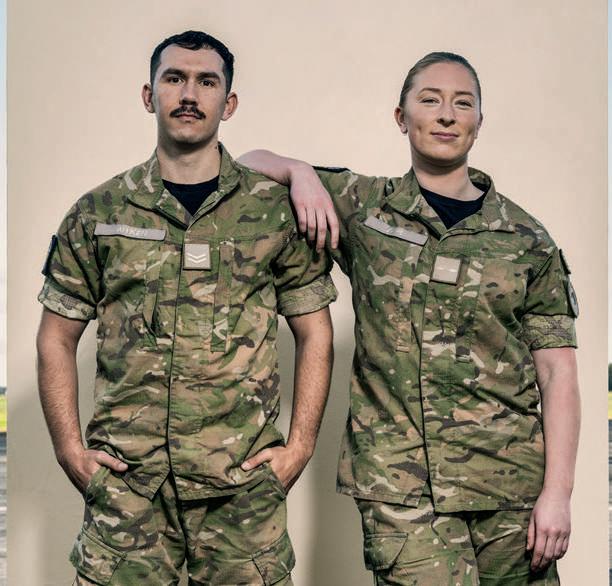
























































































































































































SEE THE STORY SEE THE STORY SEE THE STORY

















 SIONE LATU SUPPLY CHAIN MANAGER – PAGE 10
RENEE WOOD DEER FARMER – PAGE 17
SIONE LATU SUPPLY CHAIN MANAGER – PAGE 10
RENEE WOOD DEER FARMER – PAGE 17
























 by MARY JO VERGARA photographer LOGAN WEST
by MARY JO VERGARA photographer LOGAN WEST
 writer PETER WHITE photographer EMMILY HARMER
writer PETER WHITE photographer EMMILY HARMER















































































 writer SARA CARBERY // photographer RENEE ZOTOV
writer SARA CARBERY // photographer RENEE ZOTOV














































































































































































































































































































































